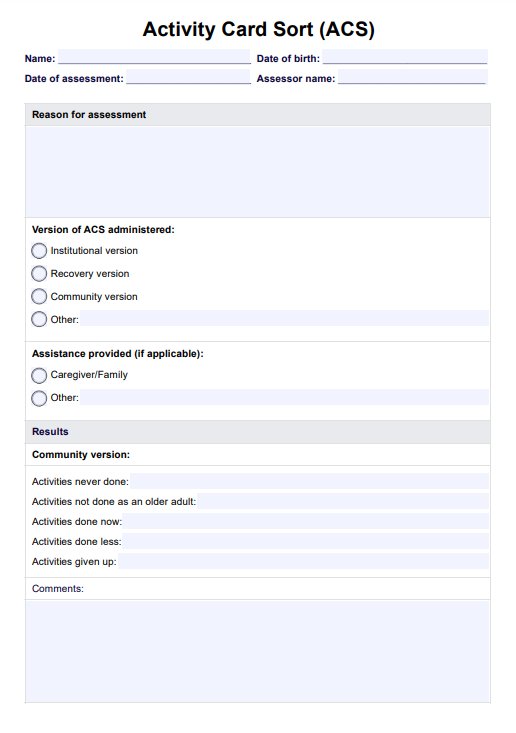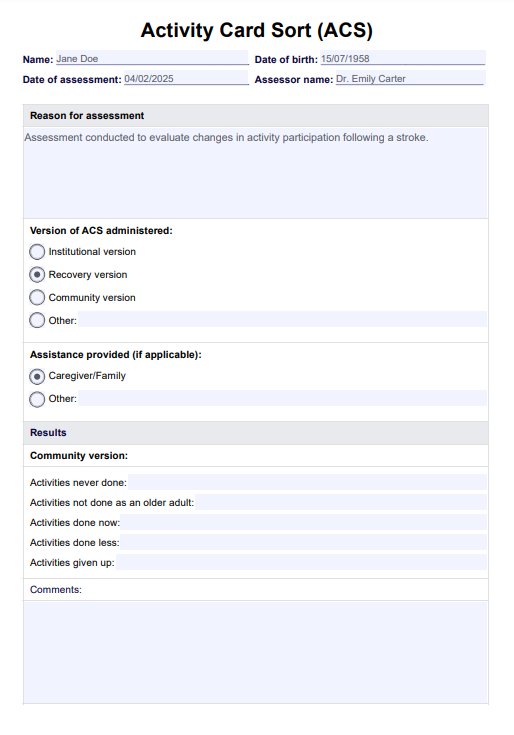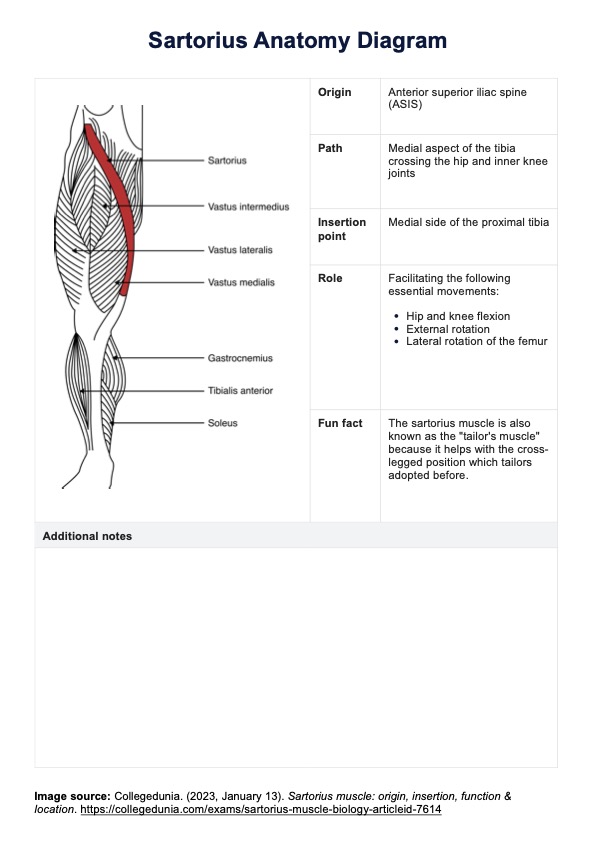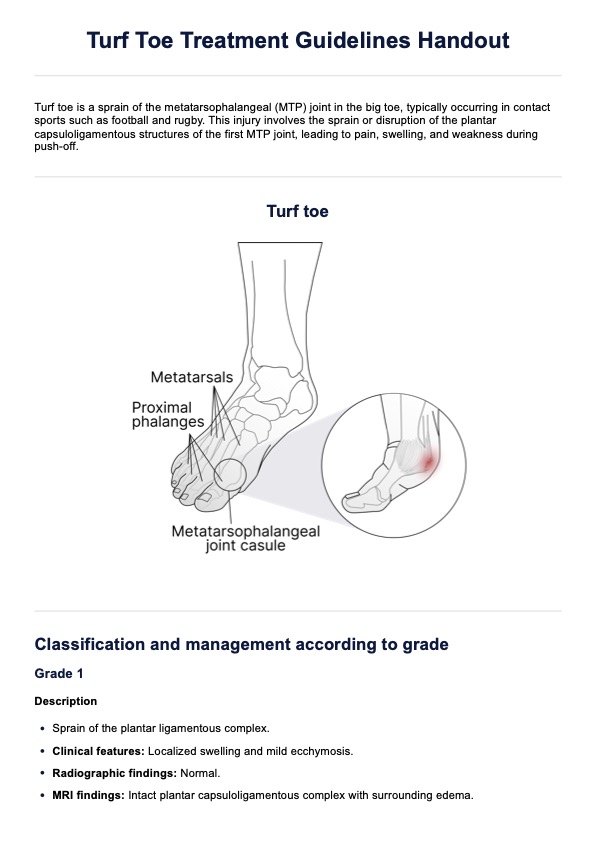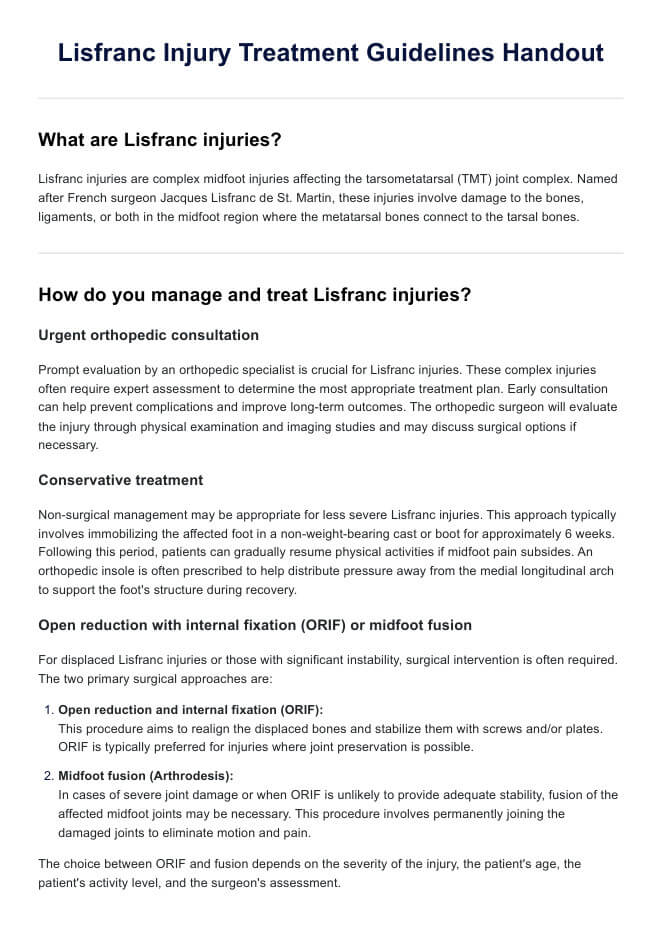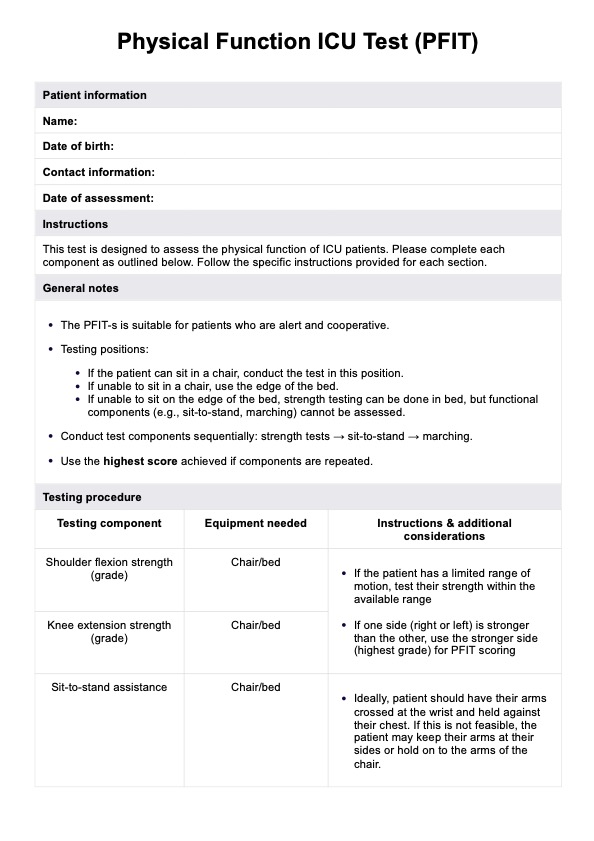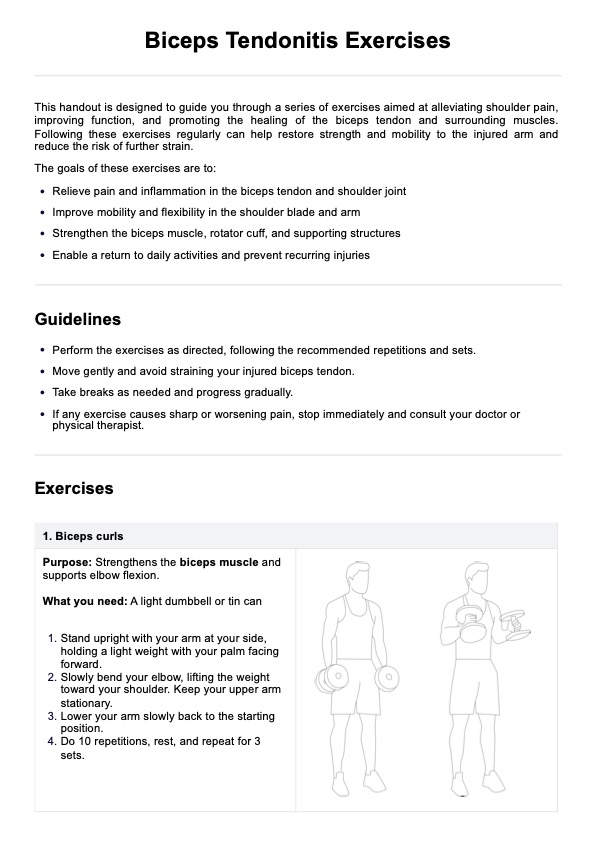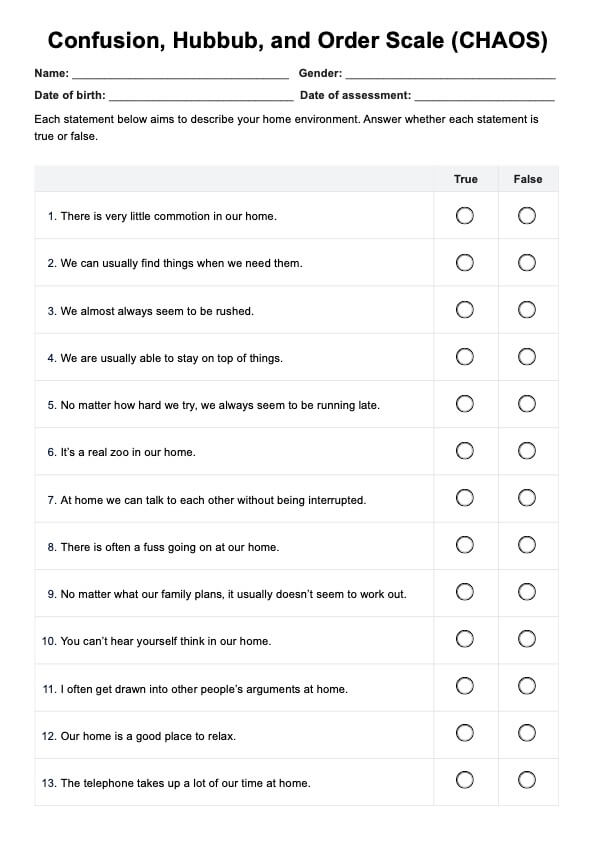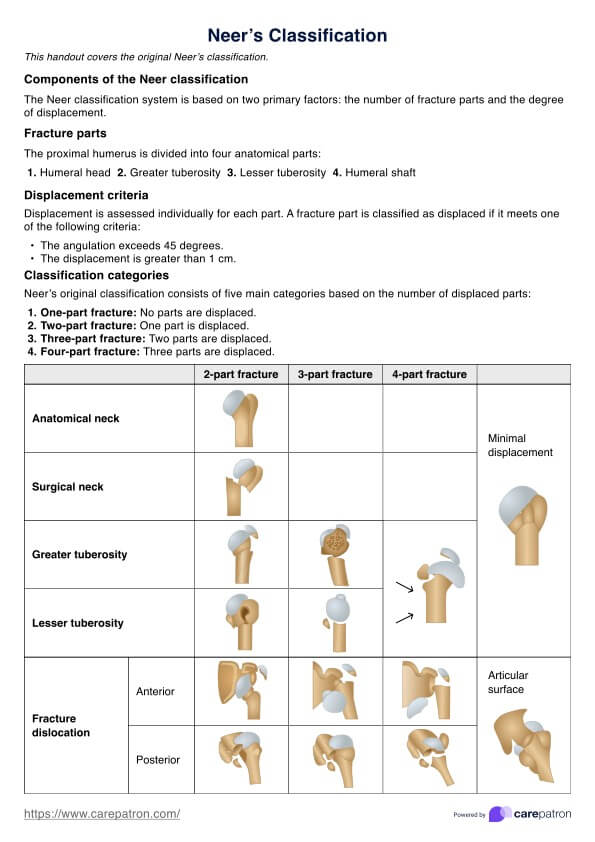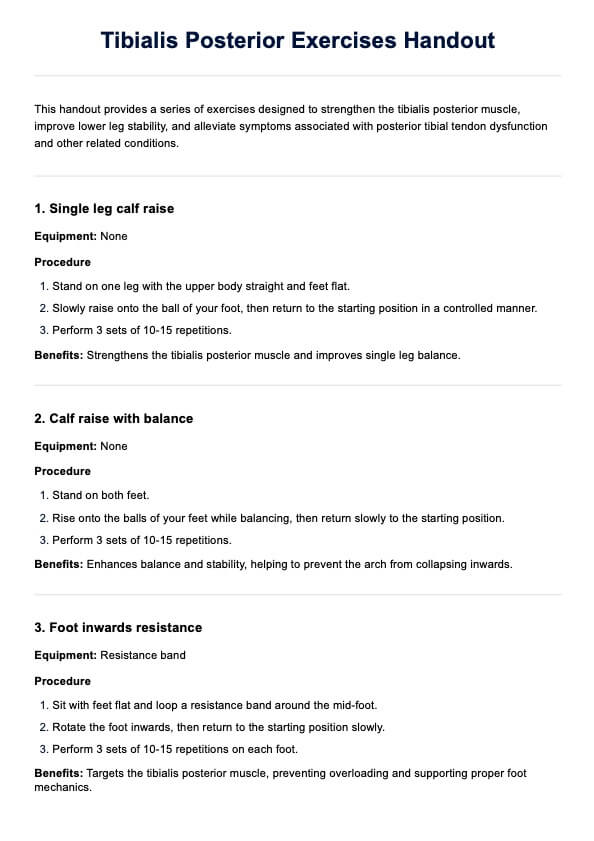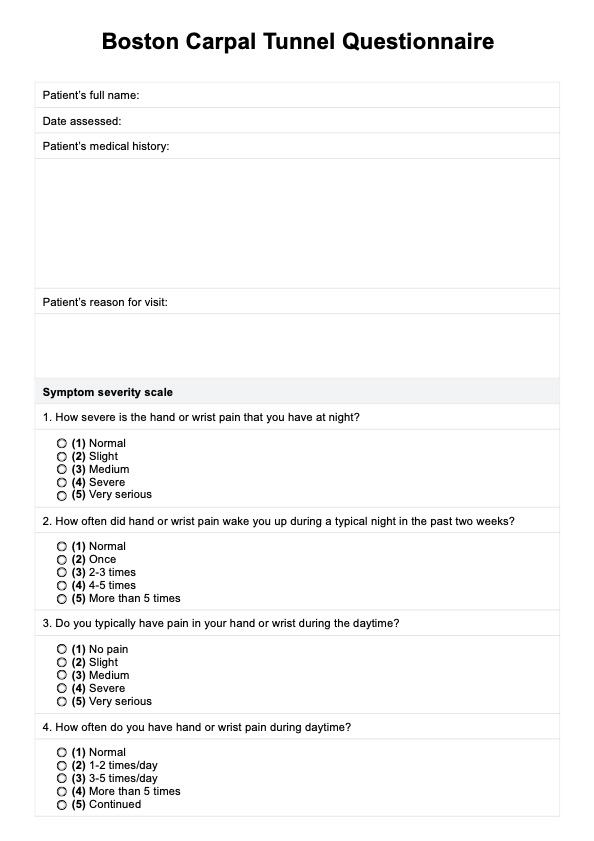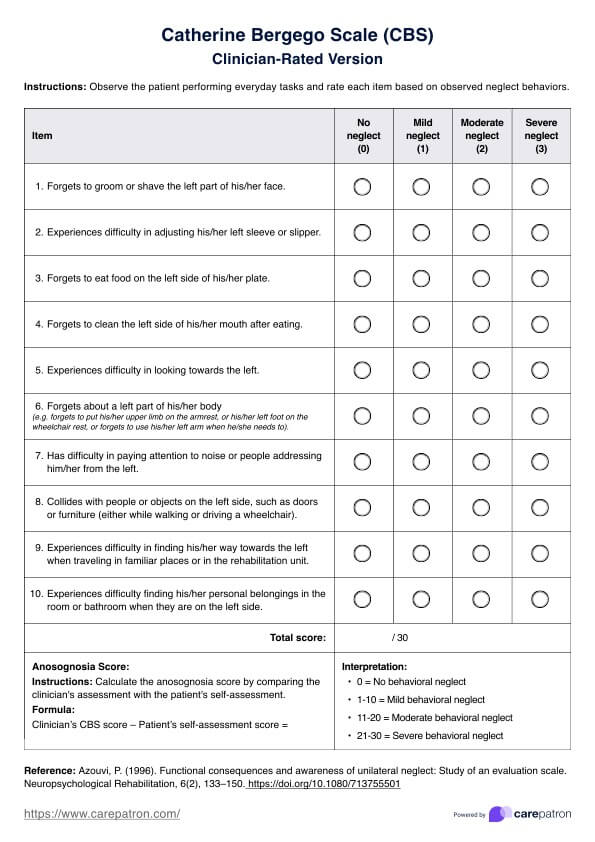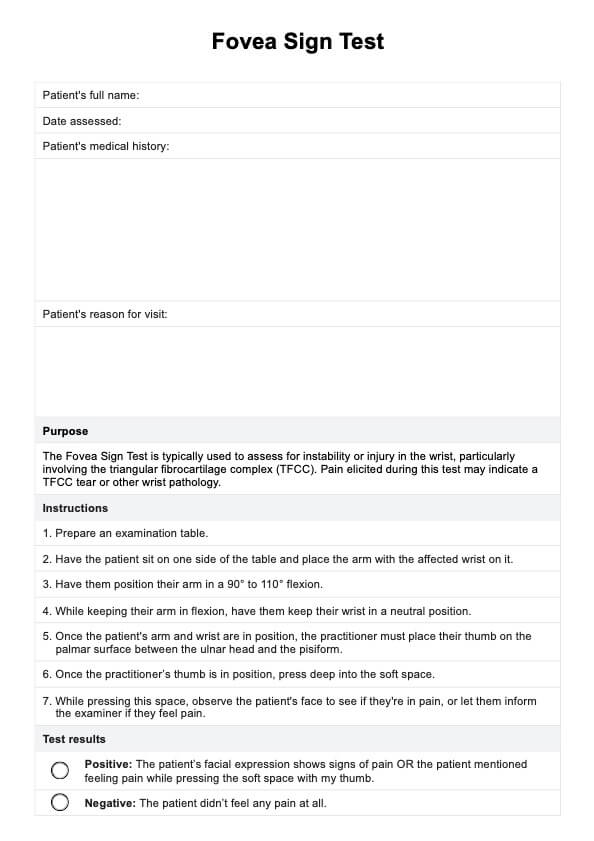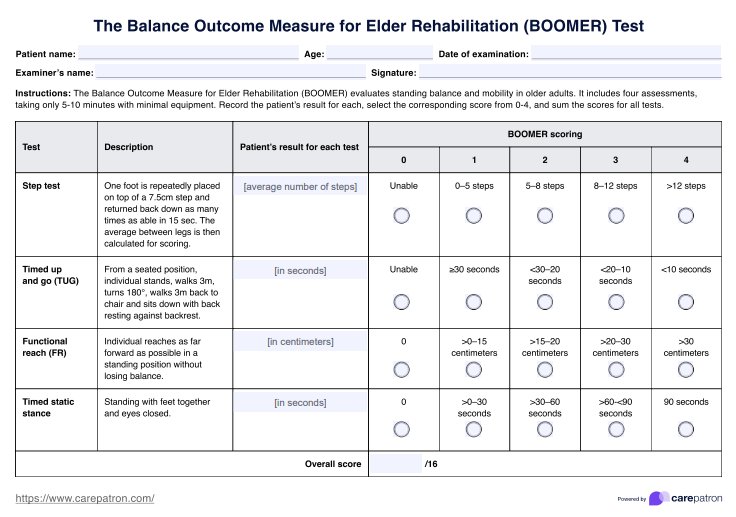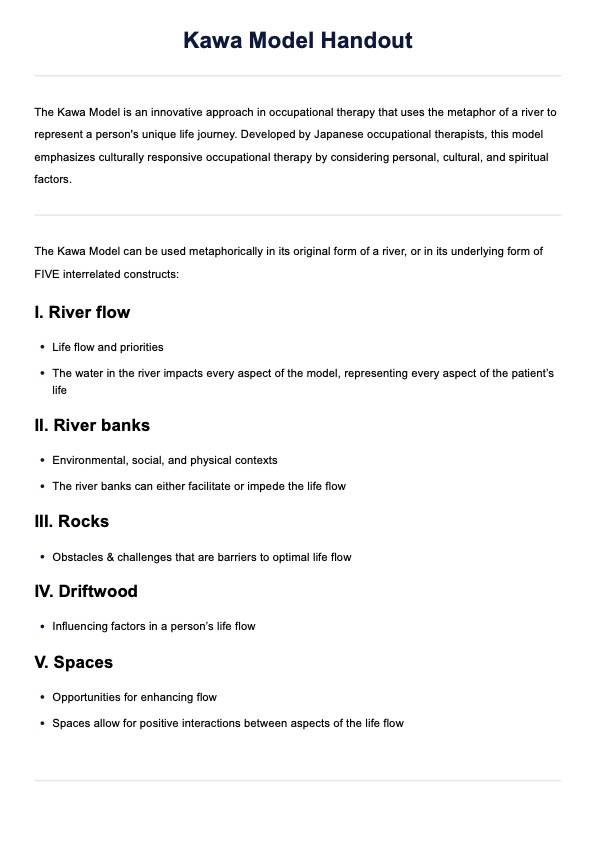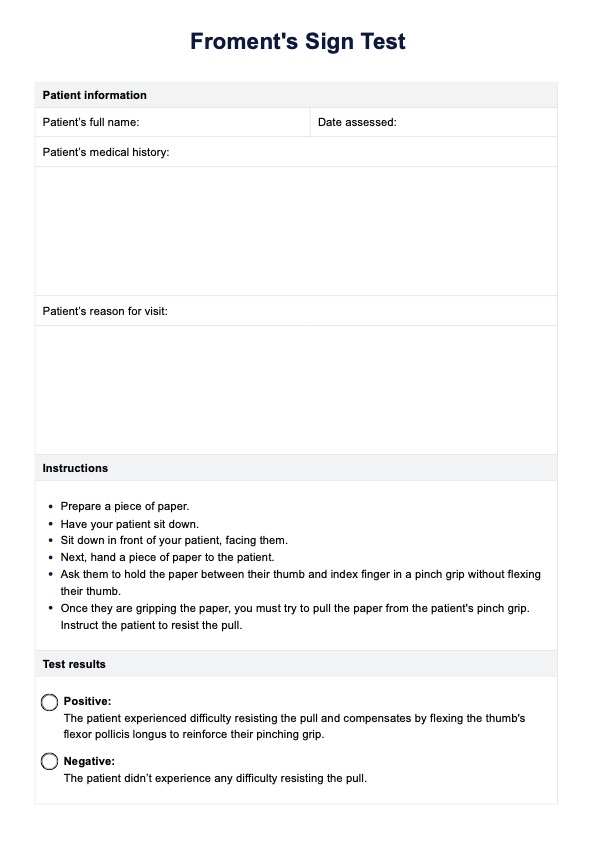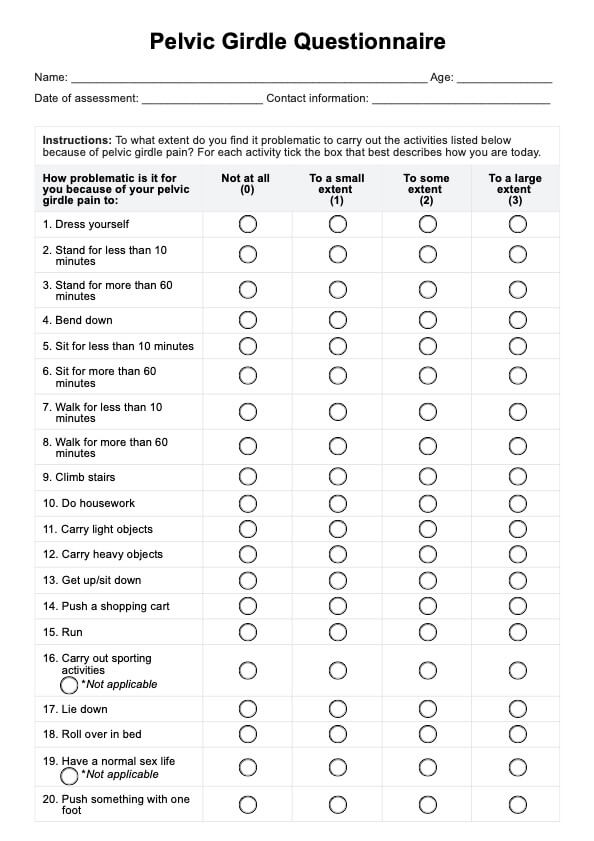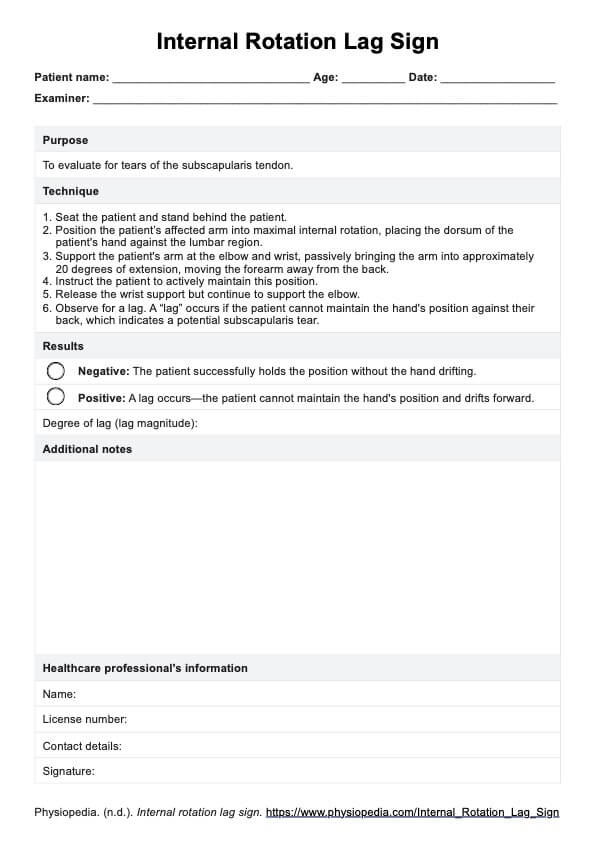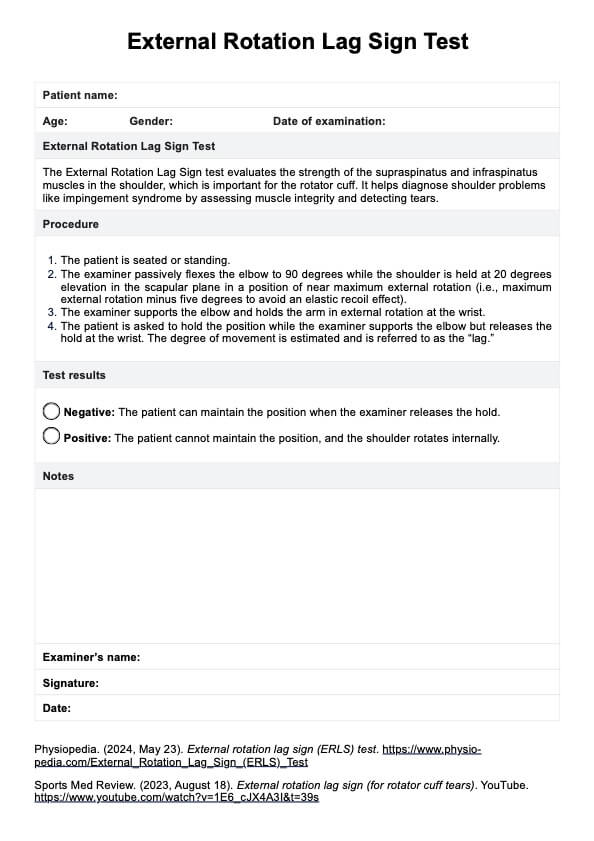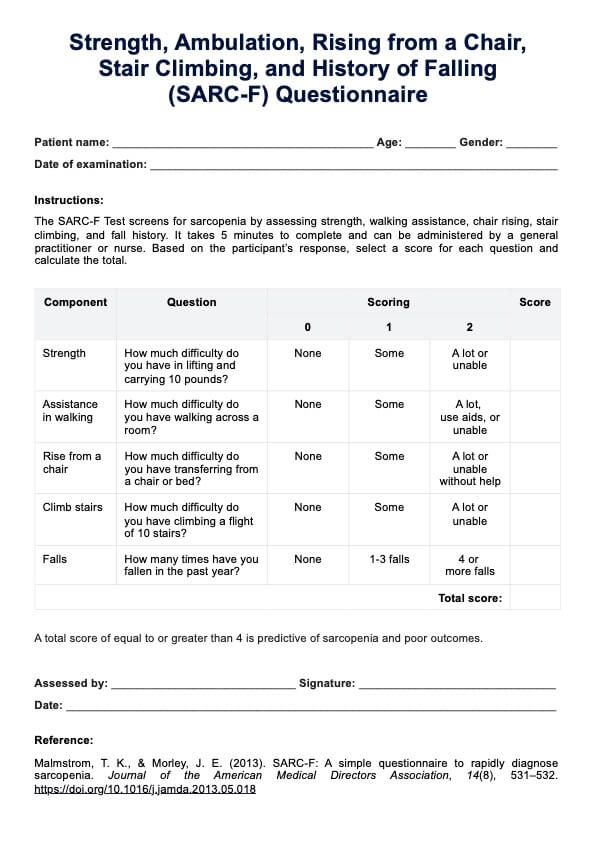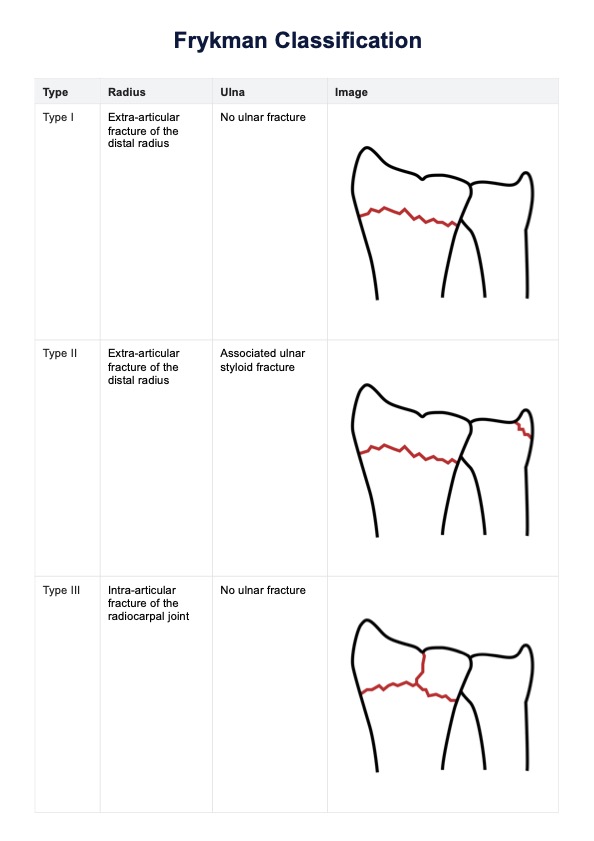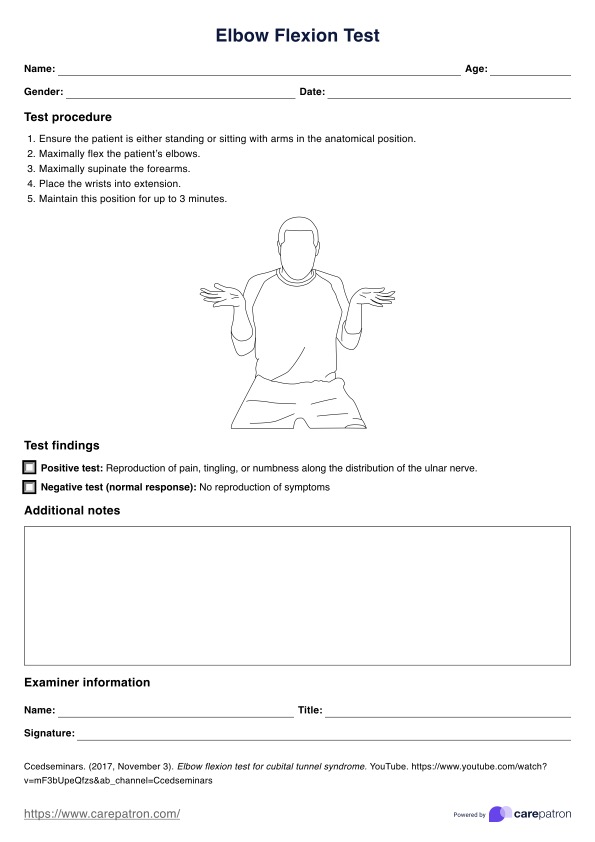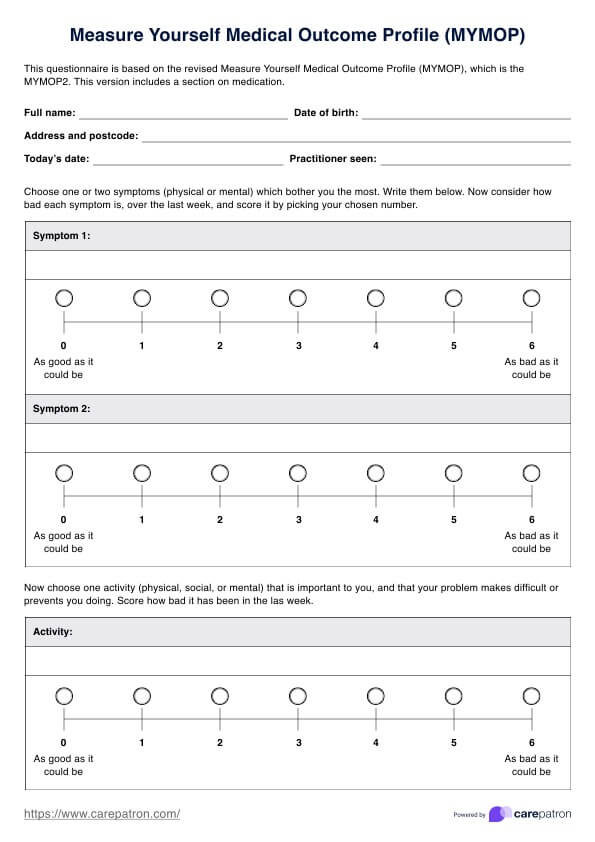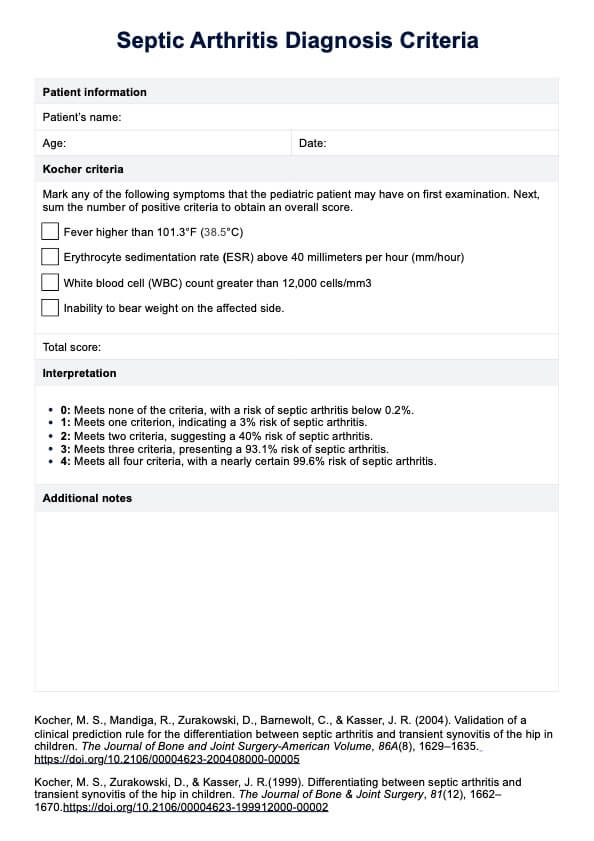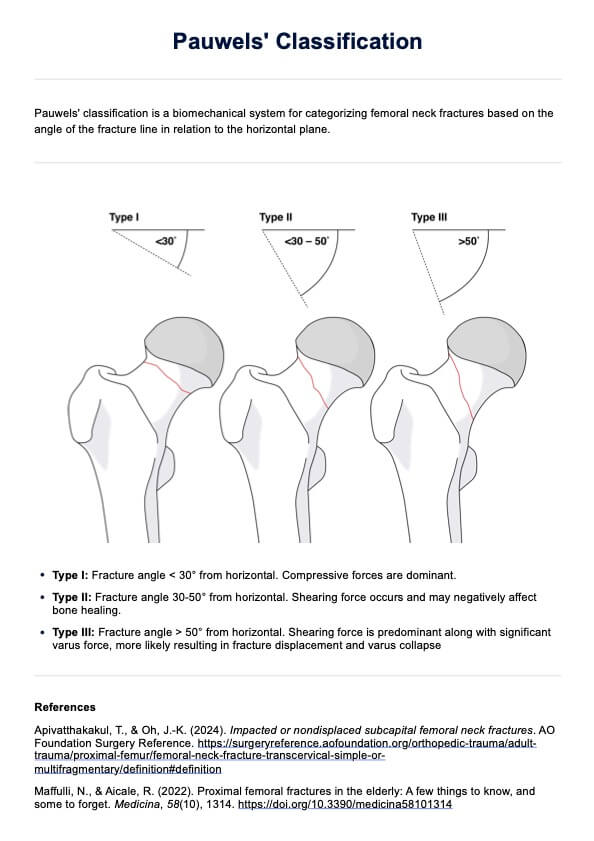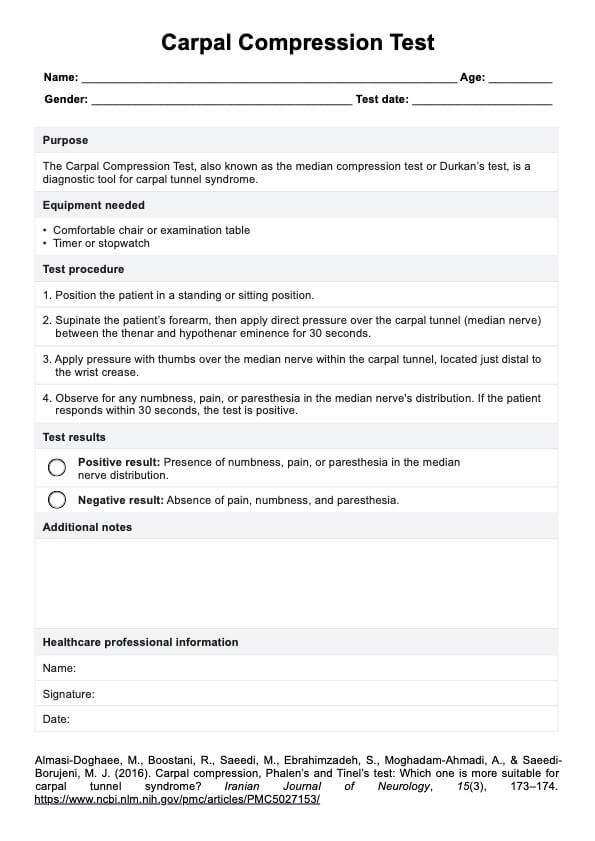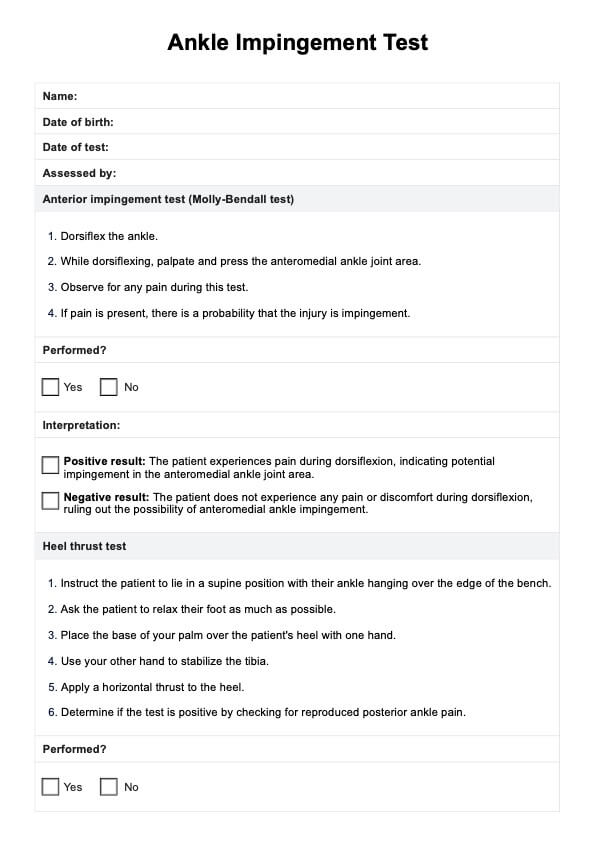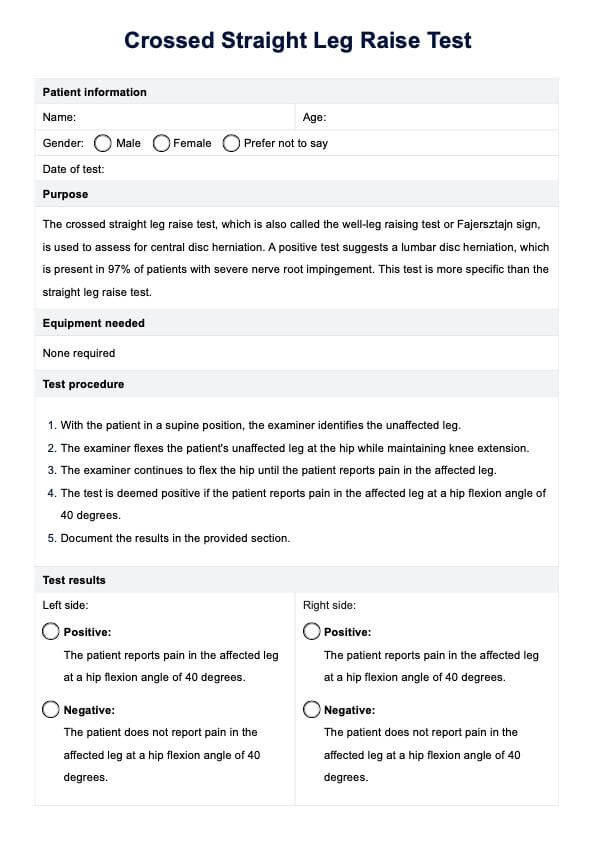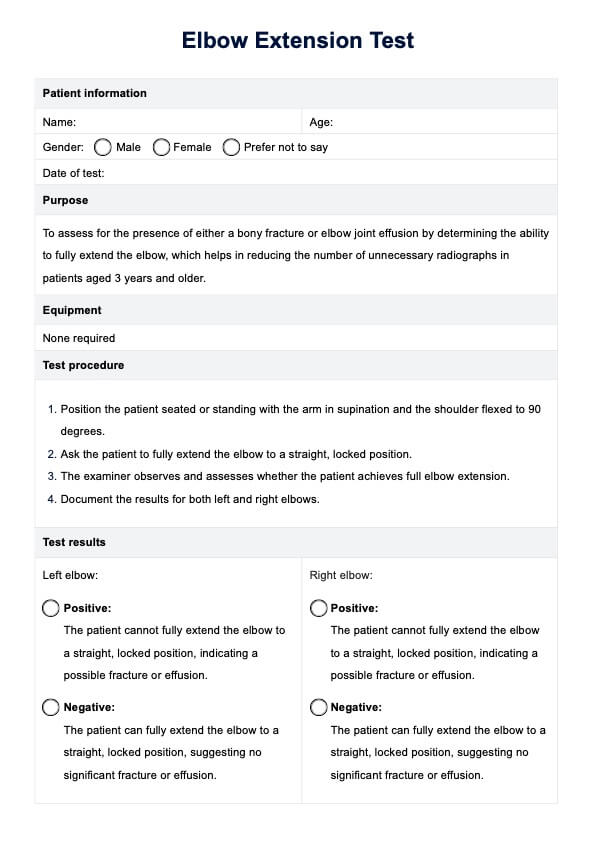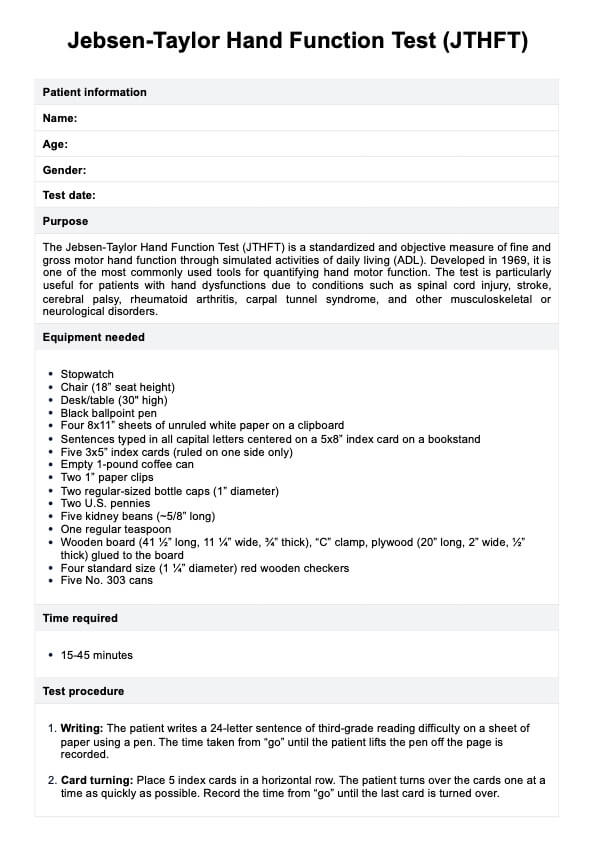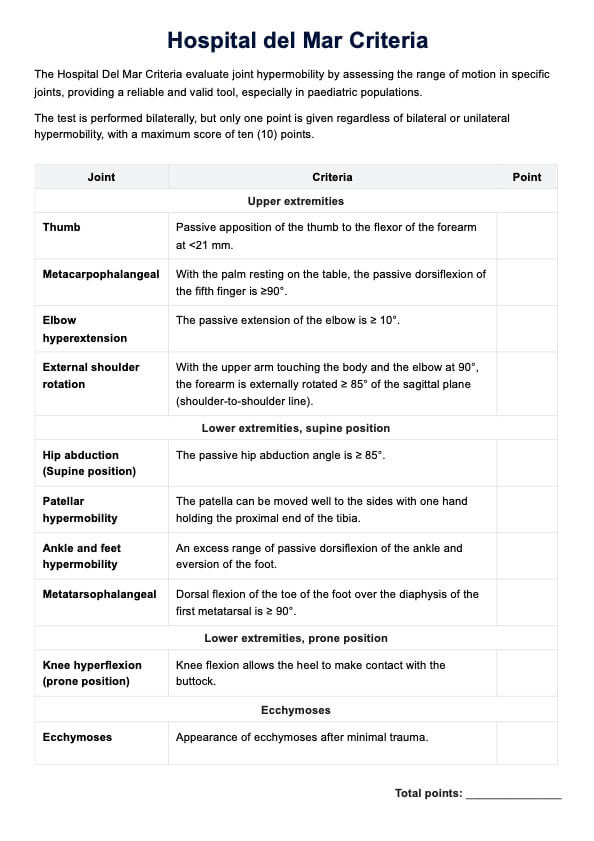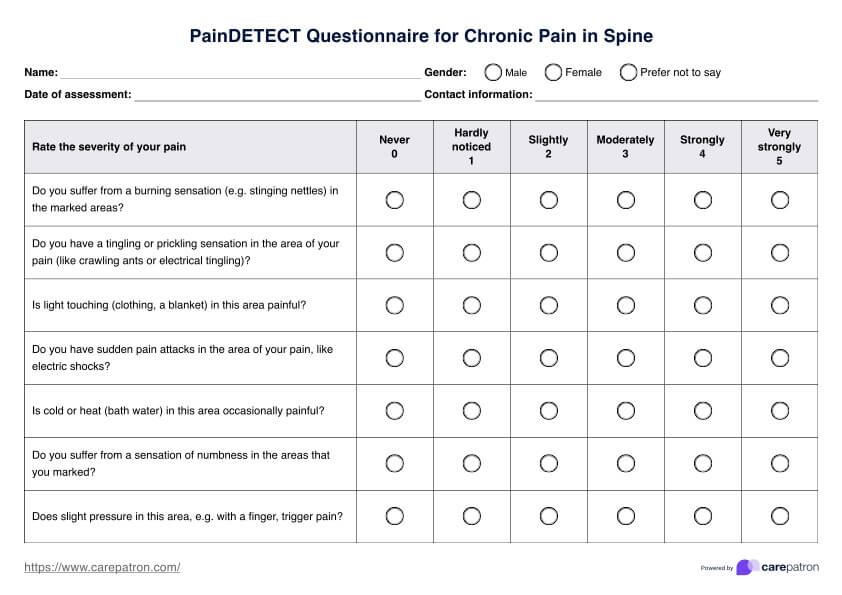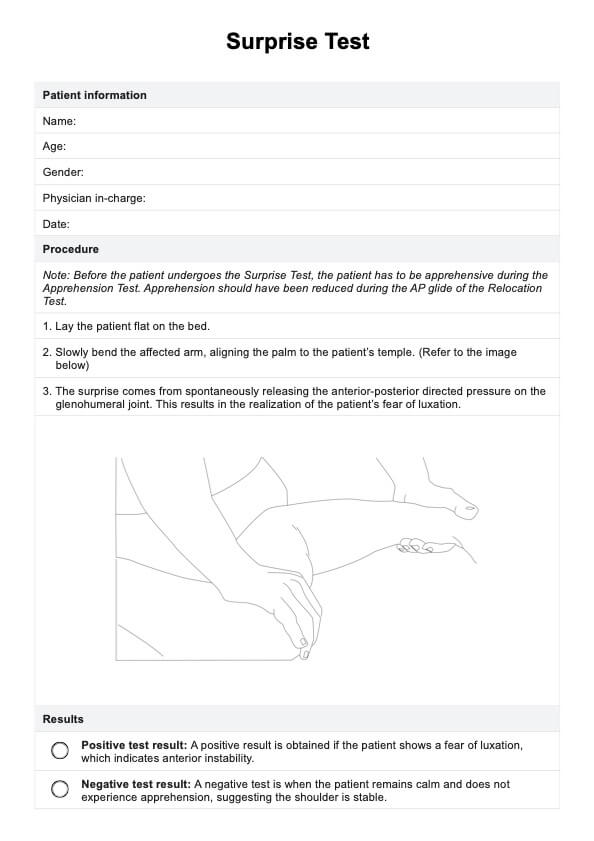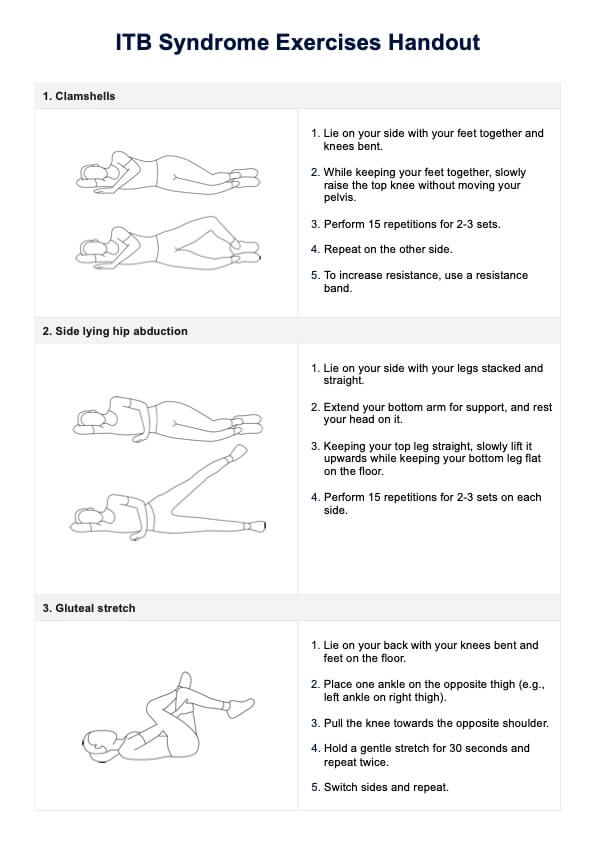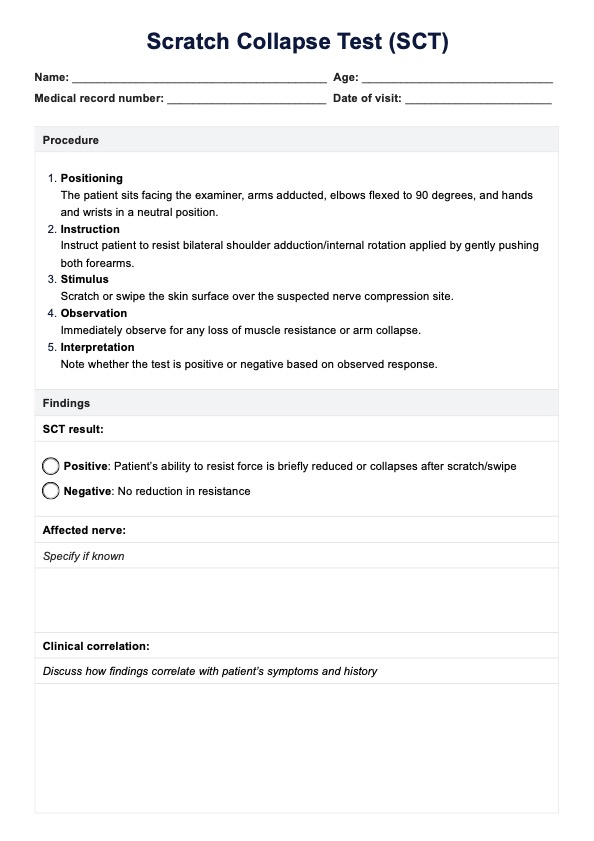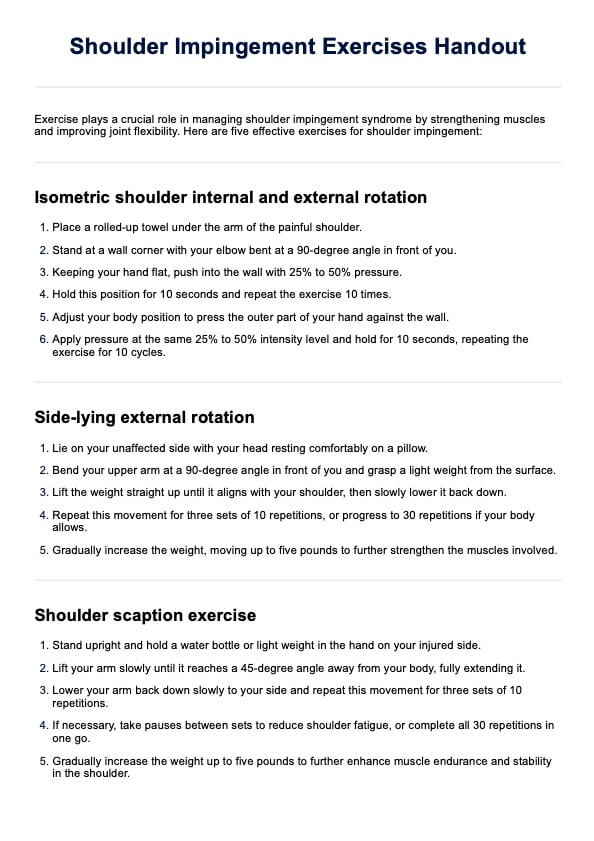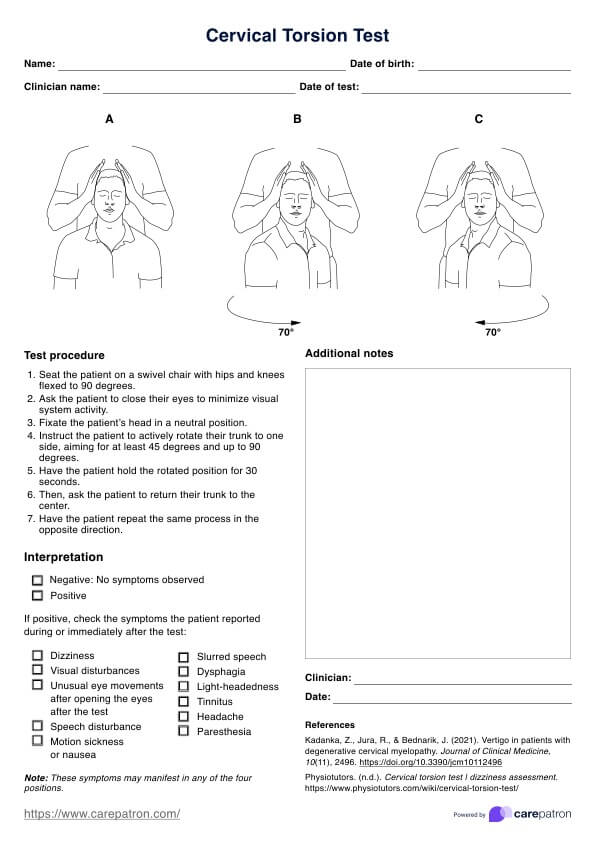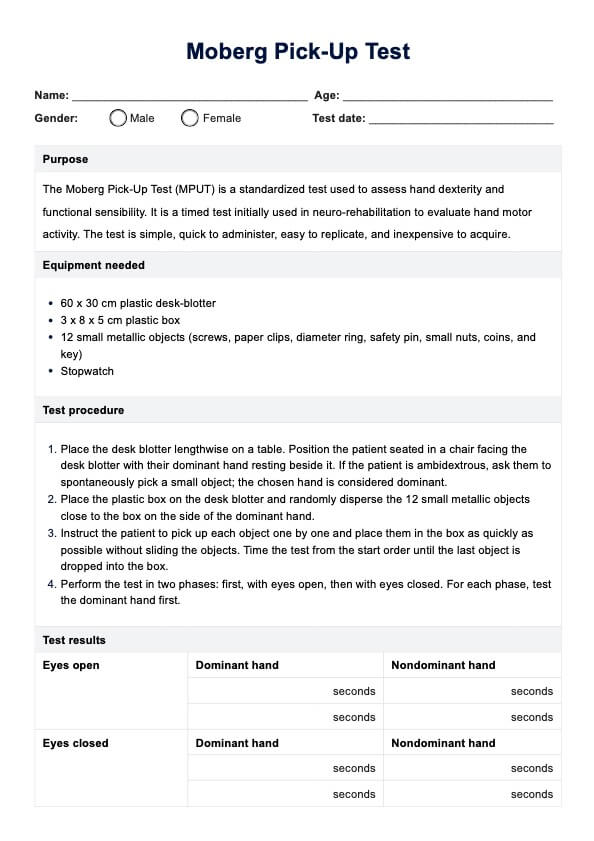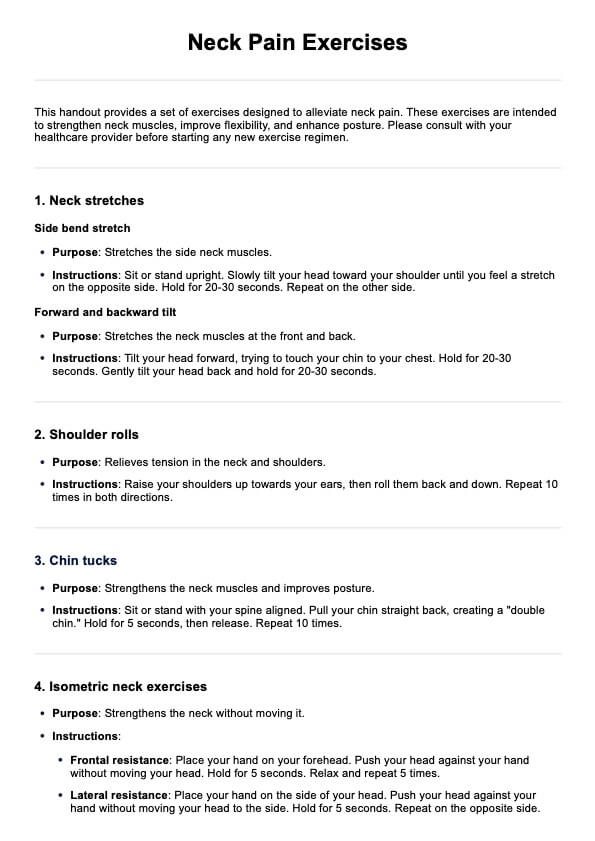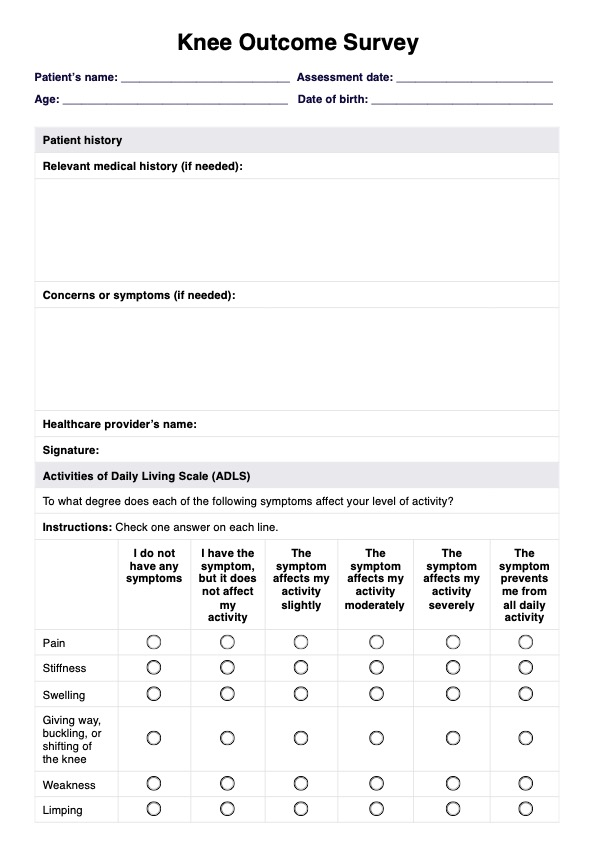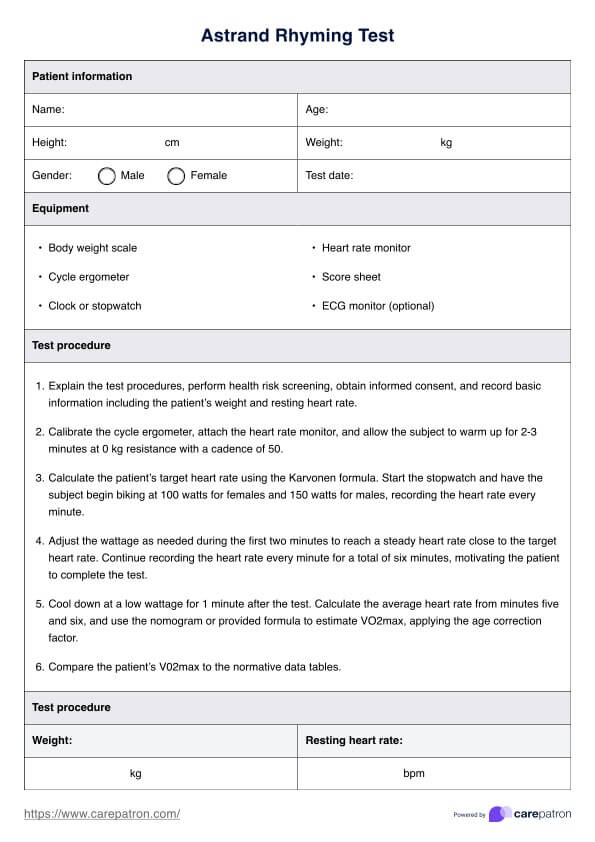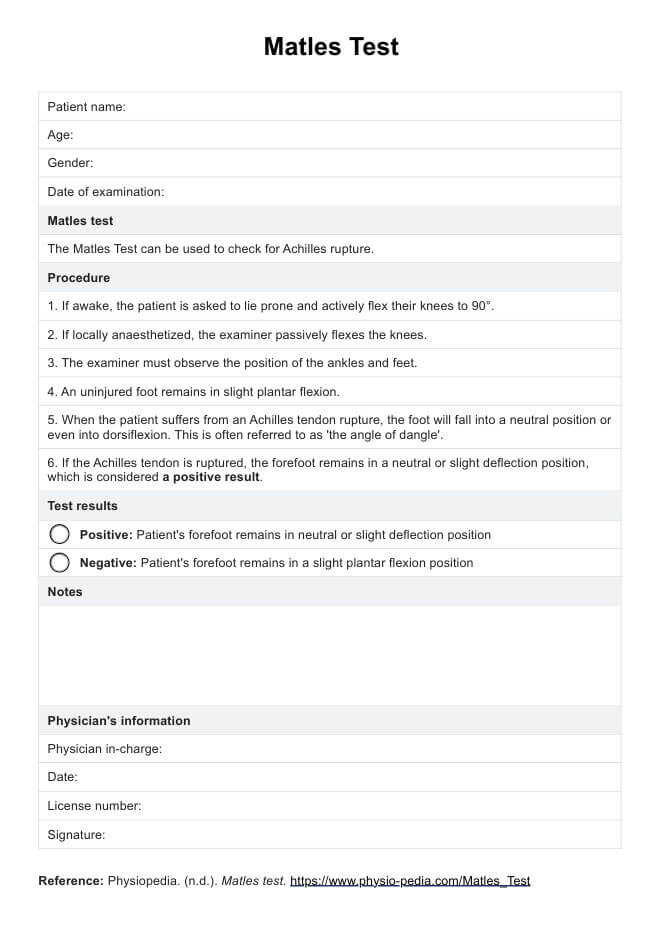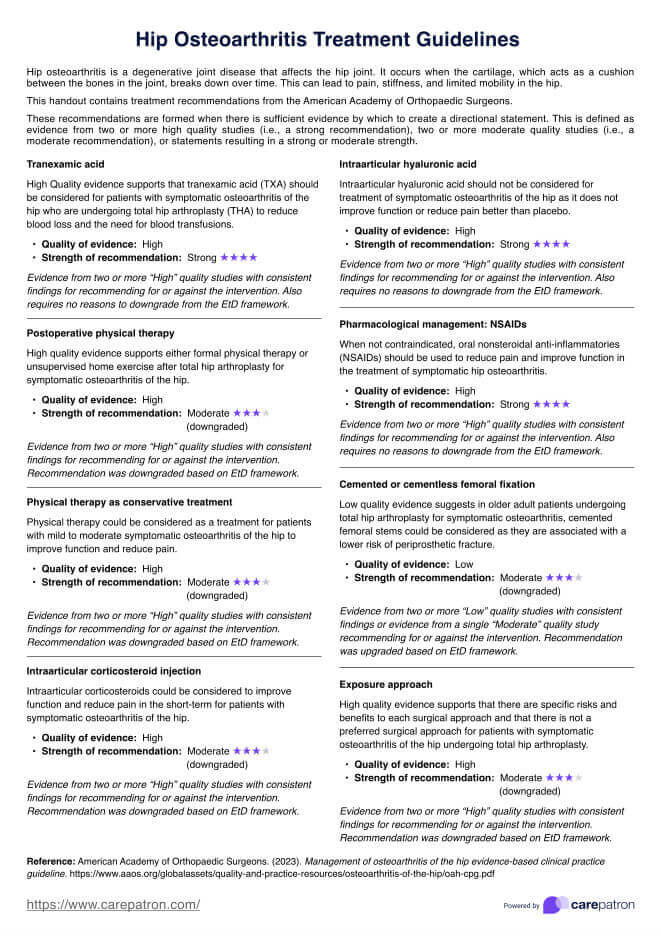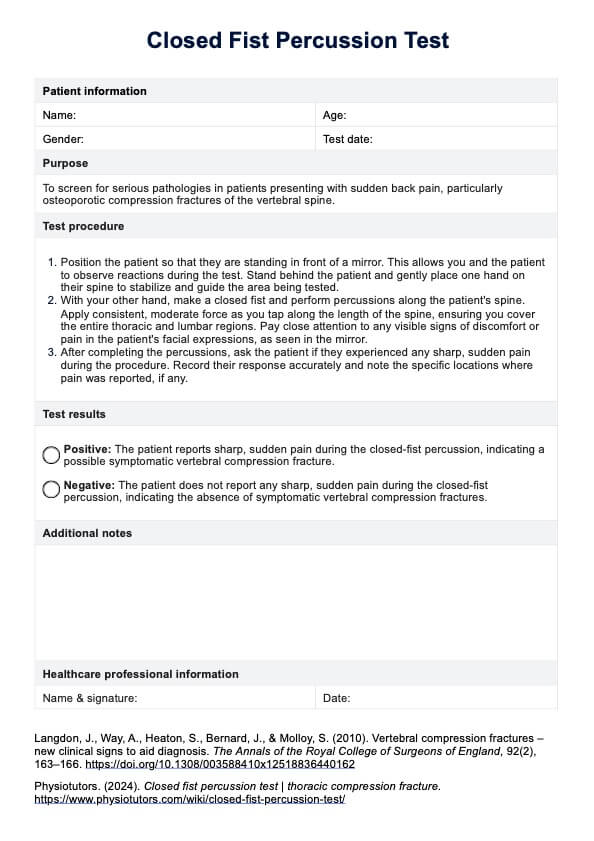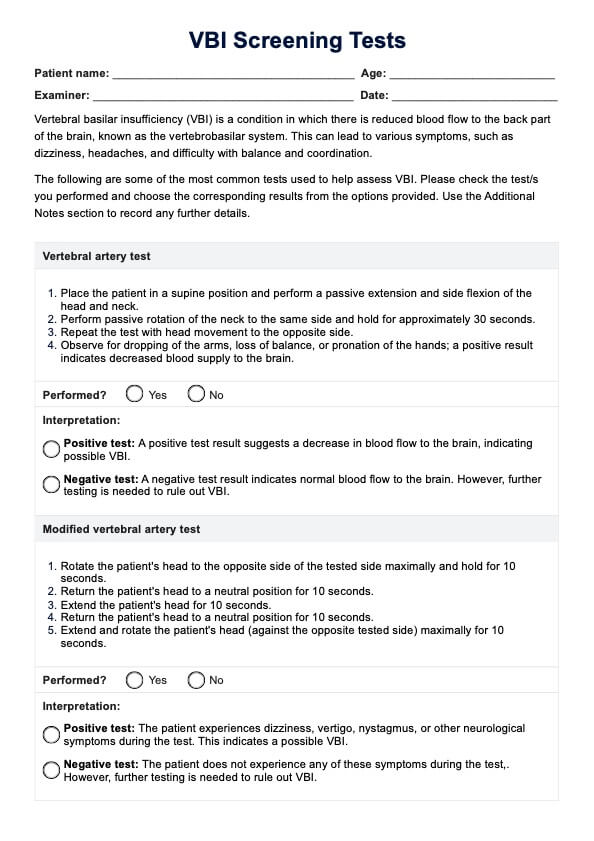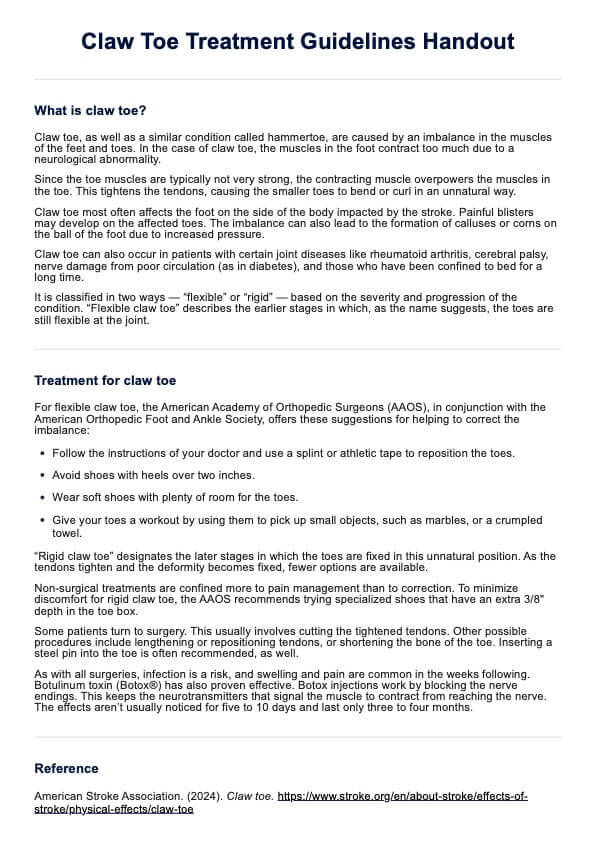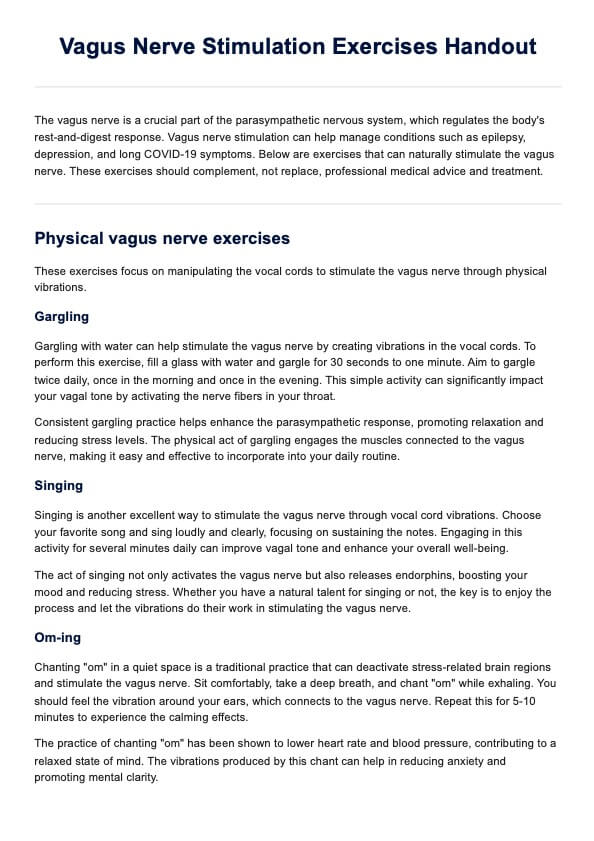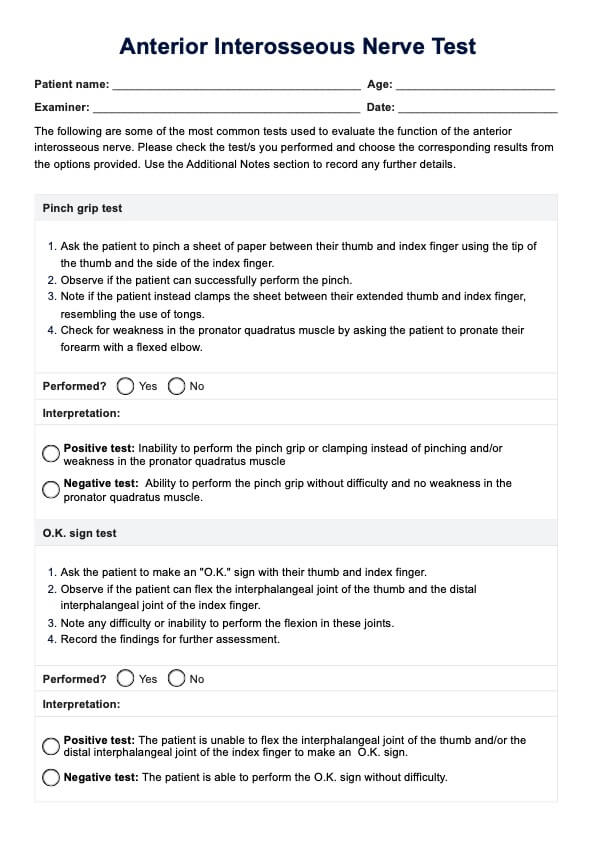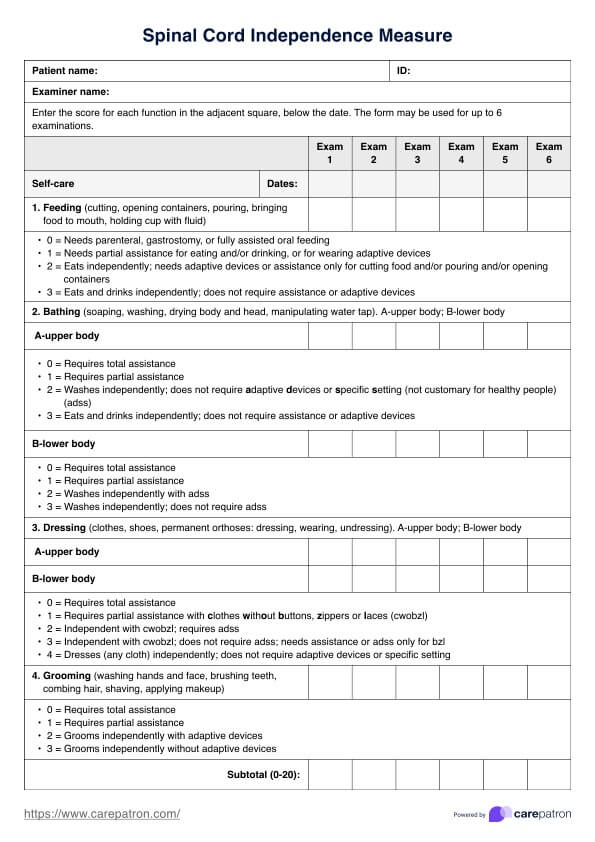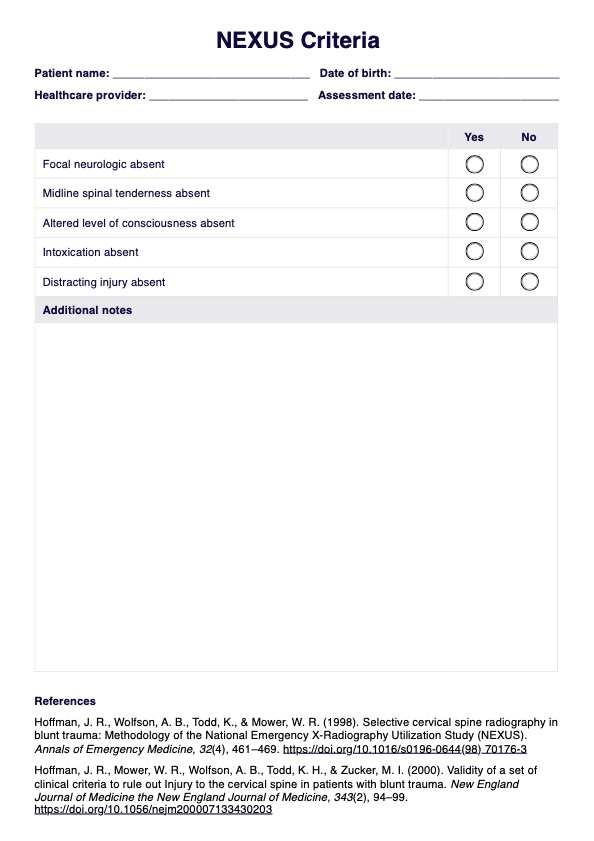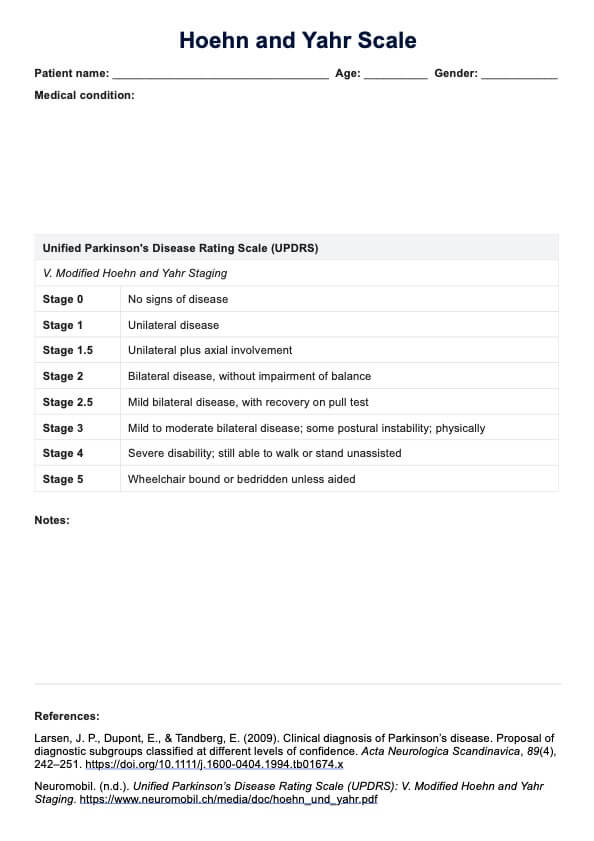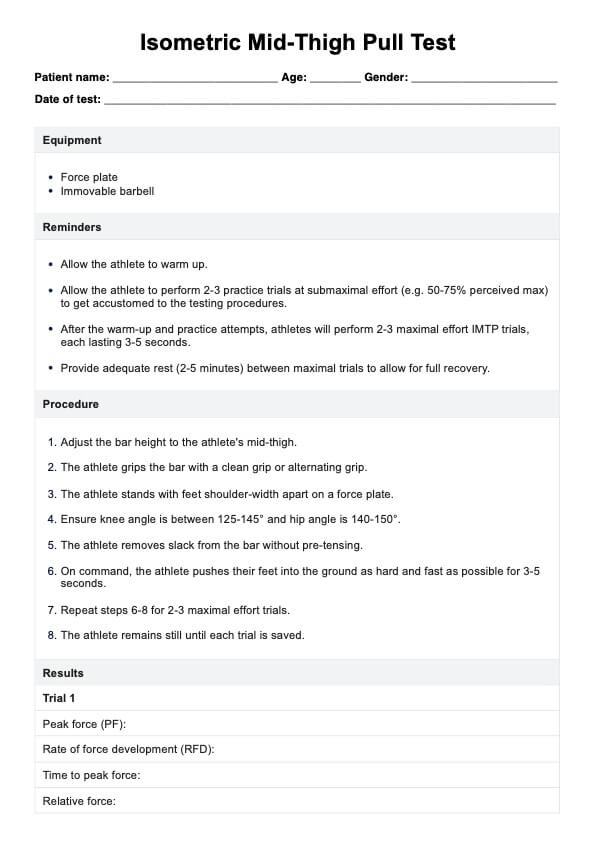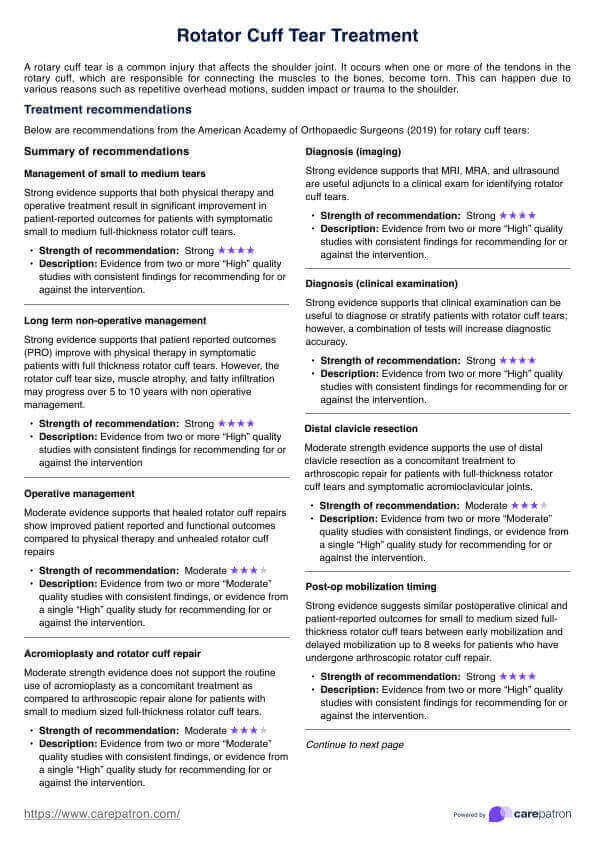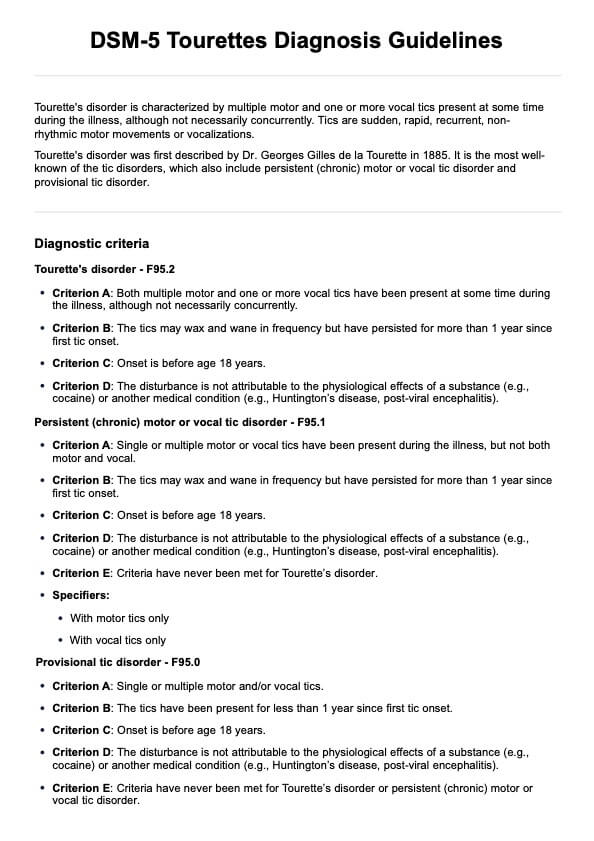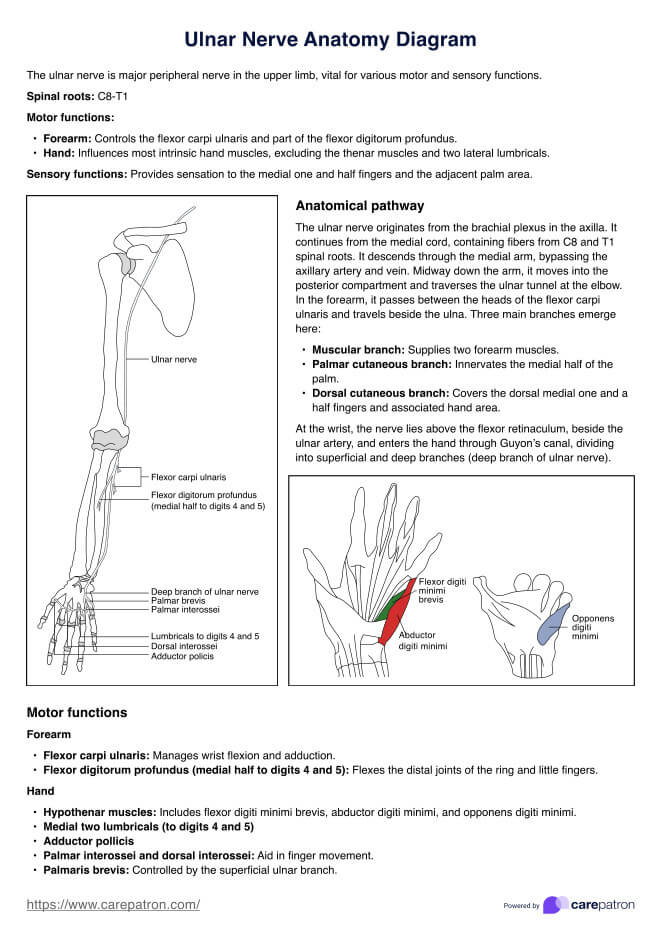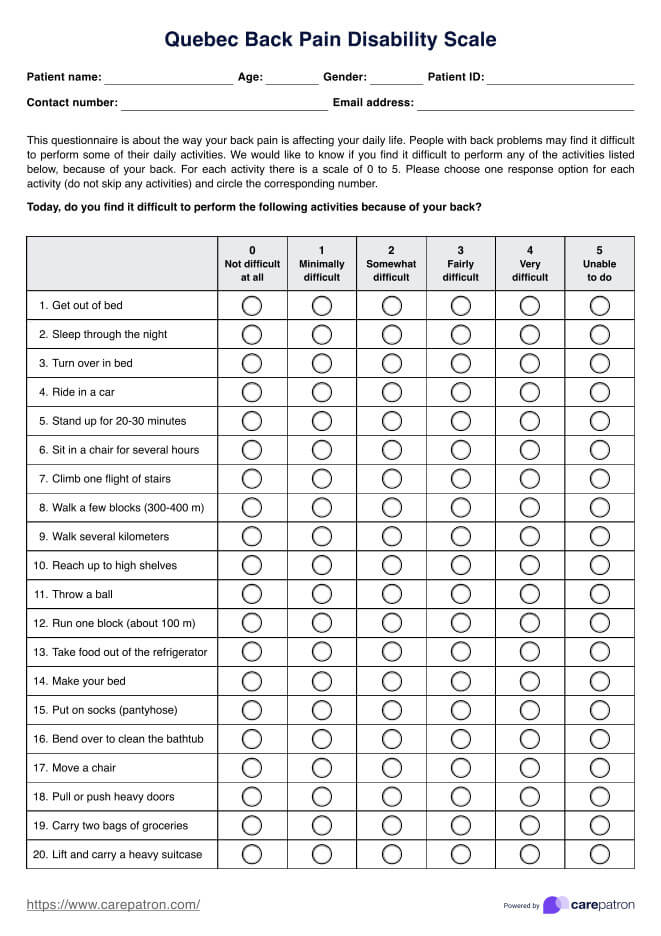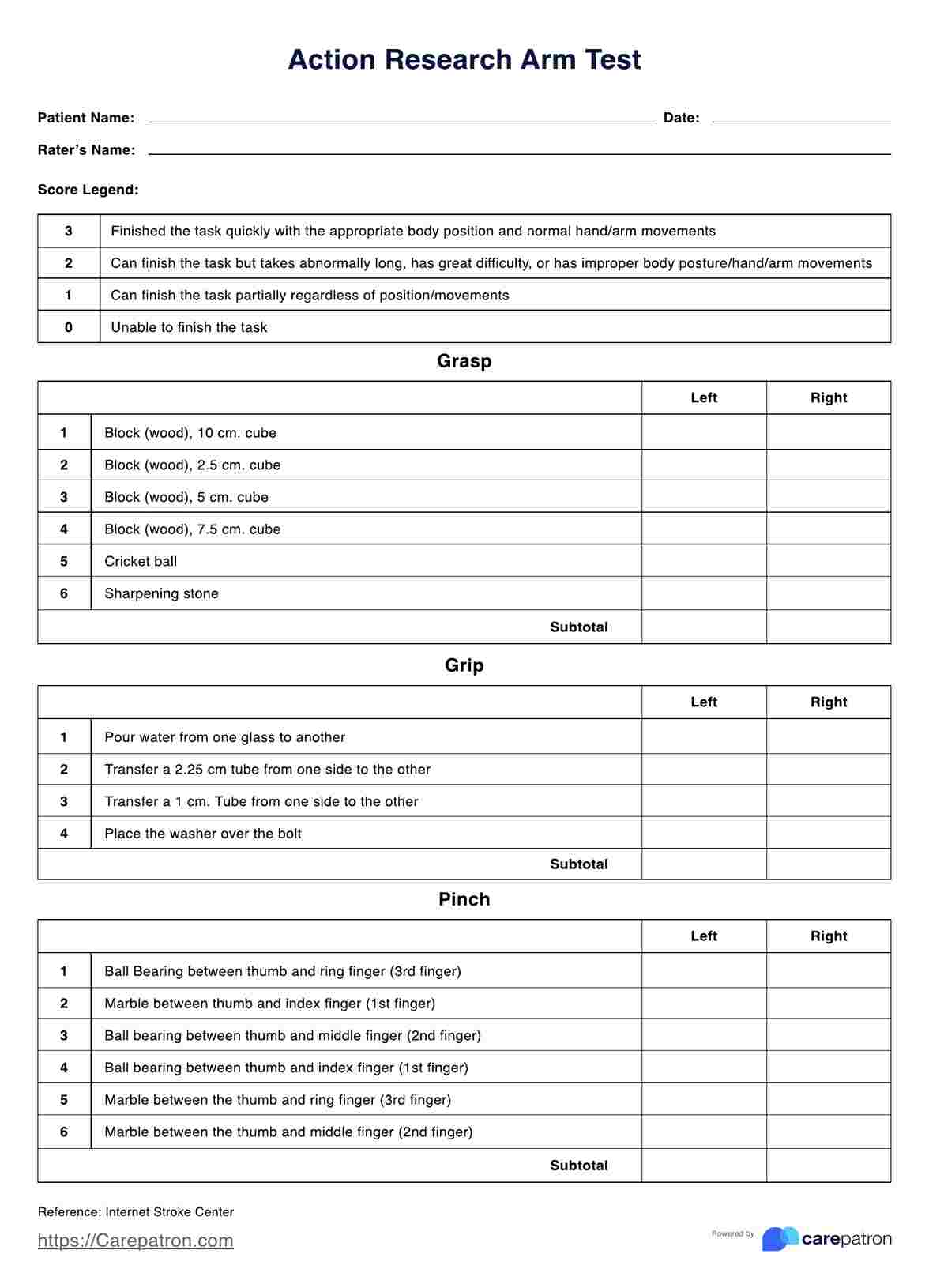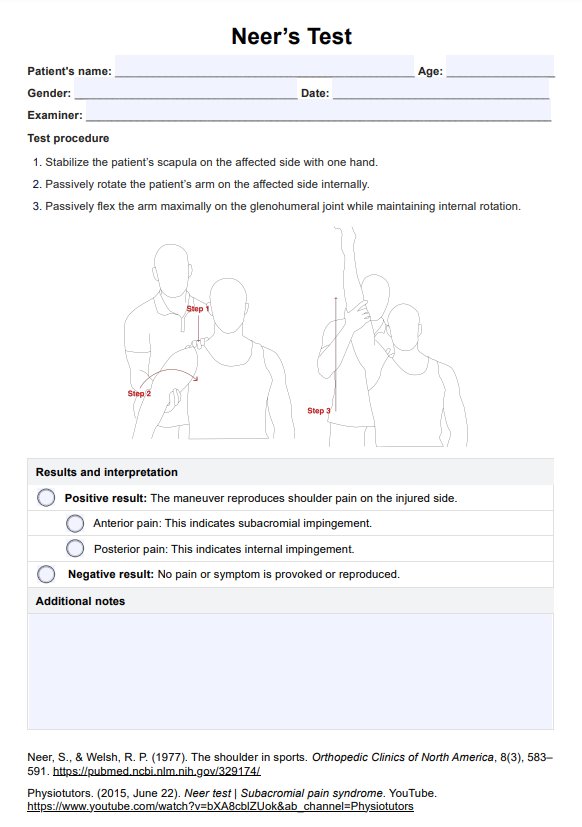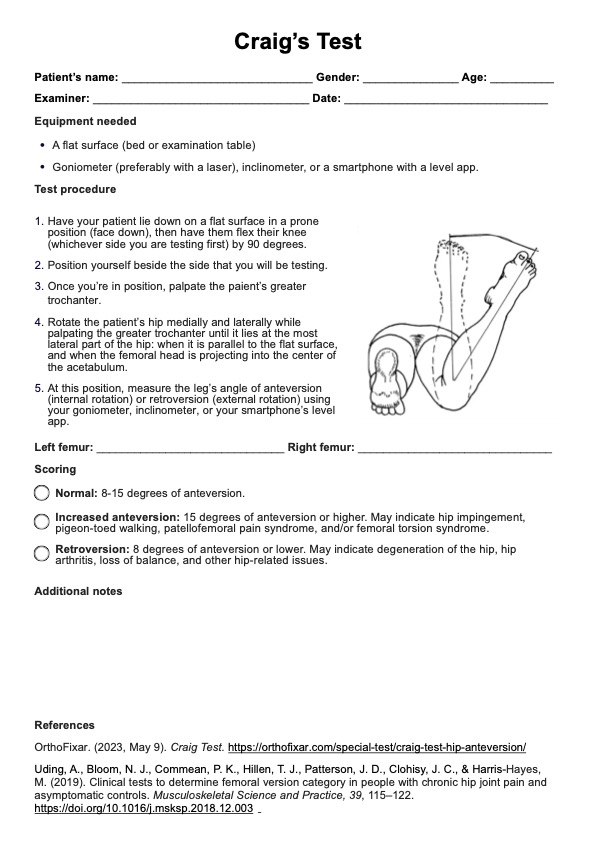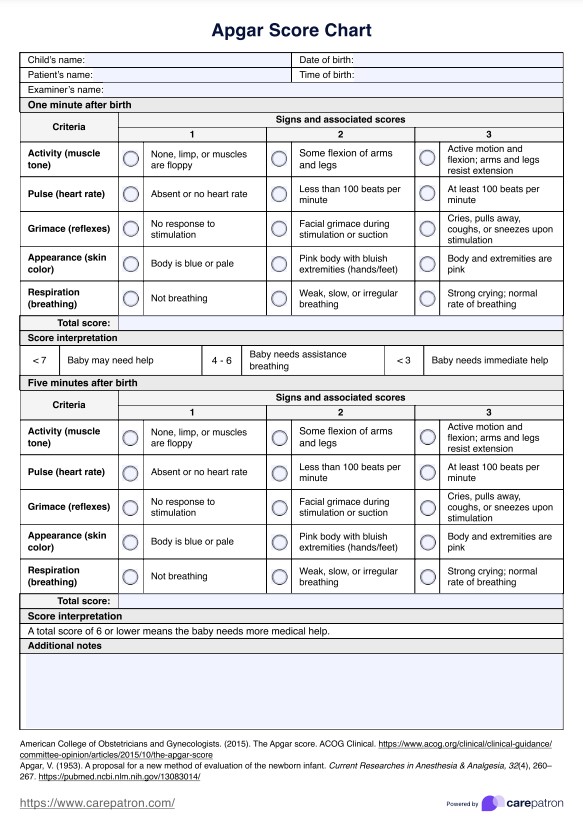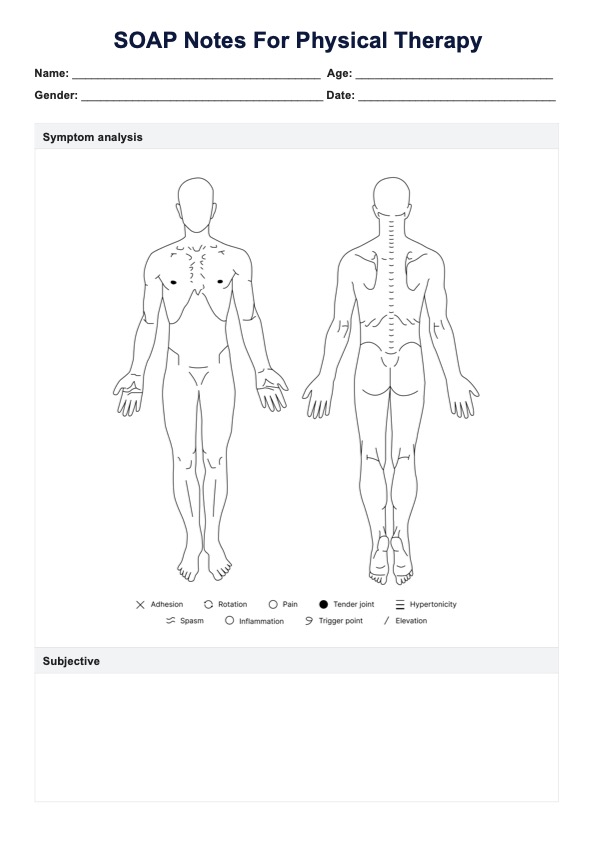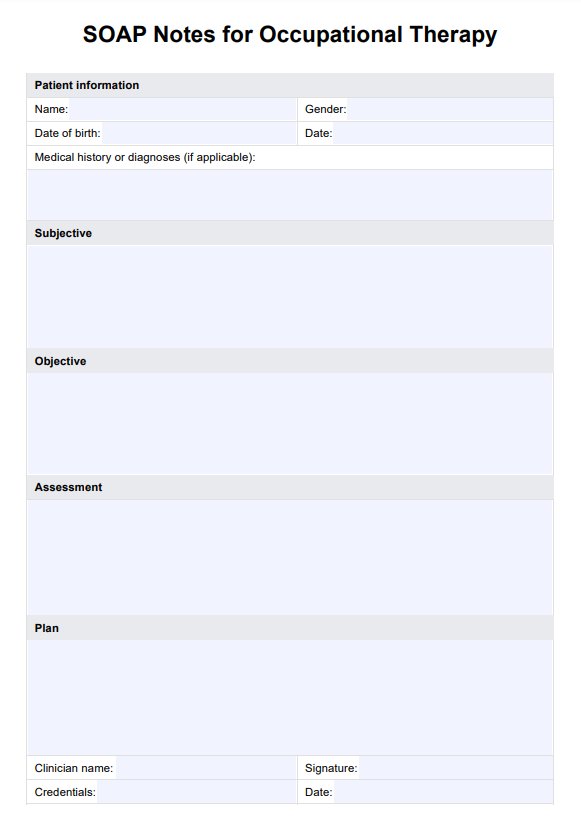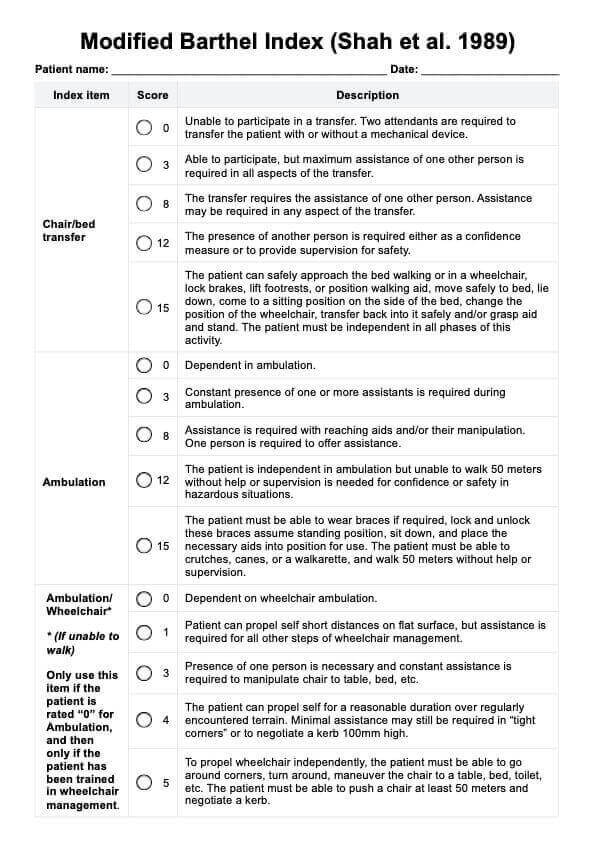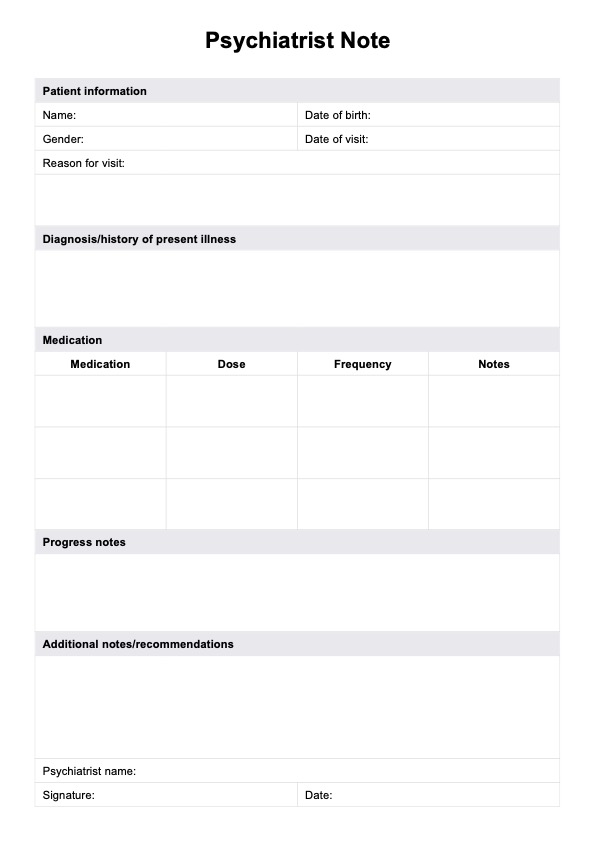Activity Card Sort
Download our free Activity Card Sort (ACS) template for seamless documentation, tracking occupational participation, and supporting meaningful client care.


What is an Activity Card Sort (ACS) template?
Our Activity Card Sort (ACS) template is a structured document designed for use by occupational therapy practitioners and other healthcare professionals to record, analyze, and document the results of an ACS assessment. The ACS is a standardized tool used to evaluate an individual’s occupational participation across instrumental, low and high demand leisure, and social domains, helping to identify meaningful engagement in various activities that support well-being.
The primary purpose of an ACS template is to provide a standardized and efficient method for collecting and organizing data. It allows clinicians to document which activities a client is actively participating in, which they have reduced or discontinued, and which they may be beginning to re-engage with. This information is critical for creating an individual’s occupational history, particularly for older adults, individuals with participation restrictions, or those adapting to significant life changes.
By using our template, clinicians can gain insights into changes in daily activities and support the development of personalized goals and interventions. Additionally, the template facilitates monitoring of progress over time, making it an essential tool for guiding effective treatment and ensuring clients achieve meaningful and healthy activities in their routines.
Activity Card Sort Template
Activity Card Sort Example
How to use our Activity Card Sort template?
We have created an easy-to-use Activity Card Sort template to assist clinicians in assessing clients’ participation in daily activities and ensuring comprehensive documentation. Follow these steps to utilize the template effectively:
Step 1: Access the template
Access the template directly from this guide by clicking the “Use this template” or “Download” button. Alternatively, you can search for "Activity Card Sort" in Carepatron's template library, available on the website or app.
Step 2: Prepare for the assessment
Before starting the assessment, complete the required fields in the template, including the client’s name, your name, the date of the assessment, and the reason for the evaluation. Familiarize yourself with the template to ensure the assessment is conducted effectively.
Step 3: Administer the ACS and document results
Conduct the Activity Card Sort. After the client or their support person has sorted the activities, observe and document the responses directly in the template.
Step 4: Calculate and interpret scores
Utilize the scoring section of the template to calculate the retained activity score and activity loss score:
- Retained activity score = (current activities / previous activities) × 100
- Activity loss score = (1 - retained activity score) × 100
Record the scores in the template to analyze the client’s activity participation levels. Higher scores reflect better maintenance of pre-illness activity levels, while lower scores highlight potential areas for intervention.
Step 5: Plan further assessment and interventions
The Activity Card Sort is a valuable tool for identifying meaningful activities and areas for improvement. Use the template to document your recommendations for further assessment, goal setting, or tailored interventions to support the client’s activity engagement and well-being.
Step 6: Save the template securely
After completing the assessment, save the template securely within Carepatron’s digital records system to ensure efficient and confidential documentation management. If using a paper copy, store it in a secure location to protect client privacy and confidentiality.
Benefits of using our Activity Card Sort (ACS) template?
Our Activity Card Sort (ACS) template is a valuable tool for health professionals, offering an efficient and effective way to assess client activity participation. Here are six key benefits of using the template:
Streamlined and efficient assessments
The ACS template simplifies the assessment process with its structured, easy-to-use format. It eliminates the need to create custom documentation for each client, reducing administrative burden and saving valuable time. This allows health professionals to focus on delivering client-centered care rather than managing paperwork.
Comprehensive and consistent documentation
The template ensures that all essential information is captured during the assessment. With clearly defined sections for results, comments, and scoring, it minimizes the risk of missing critical details. This consistency supports high-quality documentation and allows for accurate tracking of client progress over time.
Accurate scoring and interpretation
The template provides a dedicated scoring section for calculating key metrics such as the Retained Activity Score and Activity Loss Score. These calculations are essential for objectively measuring changes in activity participation. The template’s design ensures accuracy and consistency in scoring, enabling evidence-based insights to guide clinical decisions.
Goal-oriented intervention planning
By identifying changes in a client’s activity patterns—such as activities they have discontinued, do less, or have started to re-engage with—the template helps health professionals design targeted, goal-oriented intervention plans. This personalized approach ensures that therapy focuses on activities that are meaningful to the client, improving motivation and outcomes.
Versatility across settings and populations
The ACS template is adaptable to different versions of the ACS (Community, Institutional, and Recovery), making it suitable for a wide range of settings, including rehabilitation centers, hospitals, and outpatient clinics. Its flexibility also ensures it can be tailored to clients with diverse needs, such as those recovering from illness, managing chronic conditions, or adapting to age-related changes.
Enhanced communication and collaboration
With its standardized structure, the template facilitates clear communication among healthcare team members, caregivers, and clients. It provides a transparent way to share assessment results, progress, and recommendations, fostering collaboration and shared decision-making. Clients and caregivers can easily understand the documented results, increasing engagement and trust in the care process.
Commonly asked questions
The Activity Card Sort (ACS) is a widely used tool in occupational therapy international practice to assess occupational participation in instrumental, leisure, and social activities. Its initial development focused on evaluating activity engagement in both healthy adults and individuals with health conditions. The tool has strong psychometric properties, including excellent internal consistency and test-retest reliability, ensuring it provides accurate and consistent results.The structured test description ensures therapists can administer it effectively, allowing clients to describe their participation meaningfully, supporting tailored interventions.
The ACS is suitable for a broader population, including healthy older adults, those in recovery from illness, and individuals with conditions such as multiple sclerosis. It is particularly beneficial for community-dwelling older adults who may experience changes in daily living routines. By focusing on occupational participation, the ACS helps occupational therapists support individuals across diverse life situations, ensuring interventions are tailored to meet each client’s needs.
The ACS evaluates participation in leisure activities, social activities, and instrumental activities. It includes categories such as low physical demand leisure (e.g., reading or knitting) and high physical demand leisure (e.g., hiking or gardening). By using activity cards, clients sort activities based on their level of participation, allowing therapists to assess both low demand leisure and more active demand leisure activities. This process helps identify areas of focus for intervention and rehabilitation.
The ACS has three versions designed to address specific needs: the Community Living version for community-dwelling older adults, the Institutional version for individuals in care facilities, and the Recovery version for those regaining function after illness or injury. Additionally, the Australian version and other international adaptations ensure cultural relevance. These versions allow occupational therapists to support individuals in a variety of settings while considering regional and demographic differences.
The ACS has undergone extensive validation to ensure its effectiveness across a broad target audience, including the healthy older adult group, individuals undergoing stem cell transplantation, and those from unique backgrounds like the homeless population perspective. The tool’s original version has been adapted internationally, such as the ACS-Aus, to suit cultural contexts, making it a valuable resource in assessing meaningful occupations globally.


